#bless you Luis this is a great celebration gift
Explore tagged Tumblr posts
Text
youtube
So this was a wonderful surprise even to me, but Luis just uploaded a whole lo-fi mix of the entire Mystery Skulls Forever album! If you liked the Ghost remix then I think you're gonna love this one too. Each song is also uploaded separately on his youtube page along with a 2 hour version. Go get yourself some good vibes!
#mystery skulls#mystery skulls animated#msa#10 year anniversary#mystery skulls forever album#lofi#lo fi#lo-fi#lo fi girl inspiration#oh man this sounds so good perfect drawing music#bless you Luis this is a great celebration gift#Youtube
1K notes
·
View notes
Note
The sun has already set low and now the darkness has started to loom over the Aoyama city by the time Luis finishes his late stroll in the evening. While walking back to his home, suddenly, he finds an unfamiliar face pop out from the place he called his home —That visitor is a young man with pink fluffy hair dressed in the linen working attire which he recognizes to often see in those Japanese restaurants.
But before the Hispanic chef has to do anything, the pink-haired visitor is the one who greets him first.
“Oh, good evening! You are Luis-san, aren’t you? My name is ‘Asahi’ from ‘Harumatsuya’ in Nara! This is probably the first time I met you in person, I often heard of you from my grandparents.”
The young man speaks in a cheerful manner. Somehow it literally make him think that this young man’s atmosphere feels very bright even if the surroundings have become dusky due to the absence of daylight.
“Granny and gramp seem to know Uehashi oba-san from the cuisine expo some time ago, hence they told me to go greet her by myself today…Well, granny can’t come because she has to look after our shop and my gramp obviously can’t leave home. Both of them told me to deliver their blessings to you though!”
He laughs a little as he picks something out of his bag.
“As you may know… I’m not here today only on my grandparents’ request, I also come here as the representative of my team —the Nara Division, too.”
Inside the tiny box he holds out to the chef are the wagashi in a cute pumpkin shape to celebrate a certain day of October.

“So, this is some little gift from me. Happy birthday to you and Happy early Halloween! I’ve already left the gift from my shop to Uehashi oba-san when I arrived, it’s the set of wagashi specially made to enjoy the taste of October’s fall. My leader YuuYu has helped me in making them as well.”

“...And here is some souvenir from Saigo-san. It’s the Kashikata cake mold carved by an artisan he knows. He told me that he has lots of contacts of great craftsmen if you wanna order the more intricate or customized designs for whatever occasion.”

After handing his and his team’s presents to the chef, Asahi waves his hand as the farewell.
“Sayonara~~~ Hope you and your grandma have the great new year ahead! Let’s meet again another time, Luis-san. Now I’ve to hurry home before my grandma closes the shop all by herself!
Luis hadn't actually planned on leaving his house, but Karada apparently had some "emergency" and needed his help, ASAP. Tomi, of course, wasn't going to be bothered, so that just left Luis. After trudging the way to his friend's house and solving whatever problem he had, (his oven door wouldn't open, which ruined the cookies he was planning to make) the chef returned back home to find a strange, yet familiar-looking pink-haired young man on the porch of his house, making him frown slightly.
After hearing his name and the name of his shop, it was then that Luis's expression changed. He had recalled his grandmother once buying some sweets from a shop in Nara. To be honest, after trying them once, he had wanted to stop by and pick up some, himself, but never managed to find the time. Between working at his restaurant, taking care of his grandmother, and making sure his teammates didn't do anything to piss off the rest of Japan, he didn't have much free time on his hands. So having the guy who personally made the sweets come down and deliver them himself was a welcome sight.
"Thank you, Asahi-san," Luis stated. "I've been wanting to stop by, but couldn't find a chance. Give my regards to your teammates, as well. And if you find the time to come here again, be sure to stop by my restaurant. My cooks and I will serve you all something nice."
Bidding the confectionary cook farewell, the chef headed into his house and into his kitchen where the gifts were. Popping one of the treats into his mouth, he hummed as it enjoyed the flavor. He nodded, reminding to return the favor on Asahi's birthday.
#hypmic#hypnosis mic#hypnosis microphone#hypmic oc#hypnosis mic oc#luis kōkyū#happy birthday luis 2023#asahi tomoharu#yuuya kanata#saigo fuyugami#miraitabi#nara division
8 notes
·
View notes
Text
Story of Transformation - Areli
youtube
At our 30th Anniversary Celebration, Urban Ventures Participant Areli shared about her family's work to break negative cycles and create a brighter future for her family. Watch above or read below to hear how Urban Ventures comes alongside families as they work to be who God created them to be.
Good evening! It’s been said that the best gift a person can receive from others is their time, also thank you for being here to celebrate.
I am originally from a beautiful town in Mexico, but my parents, like so many others, had little work opportunities there, and so they made the difficult decision to move their family here to the United States. That is how, as a teenager, I became an immigrant. My parents dedicated themselves to working very hard. I will always be grateful to them for teaching me from an early age what it means to have a strong work ethic.
But I also remember wishing they would be home more. I felt alone in trying to figure out life. I started a relationship, and was blessed with my first daughter. I knew early on as a mother that I wanted to give her a different childhood than the one I had. My parents did the best they could with what they had, but my home growing up was filled with abuse, negativity, and a lack of affection.
Today, I am a mom of three beautiful children. But I was not a beautiful mom at first.
I started raising my children the same way I was raised, continuing the patterns I was trying to break.
I remember being harsh with one of my children because that was how I was taught to discipline. But at the same time, I was apologizing to them, because I knew how much it hurt me as a child to be treated so harshly.
I was afraid my children would feel alone, or feel like I didn’t love them enough.
I felt guilty and helpless because I knew that history was repeating itself and I didn't know how to make a change. And that's why I want to apologize to my children – they are here tonight. I love you, and I am sorry.
This cycle continued for many years. I had mostly given up hope. But one day, I heard a wonderful woman from Urban Ventures talking about how to be a better parent. She did it with so much love and passion. It was how I wanted to be as a parent. It was what I had been searching for.
This woman, Myrna Garcia, invited me to her class on Wednesday nights. The timing felt impossible for me and my partner, Luis. We both worked at night. But when we talked about our greatest priorities, we decided to make the sacrifice. We came to class from 6 to 8pm and then went to work until 3am. Believe me, this was a sacrifice. But it was worth it!
Little by little, I learned that parents can be physically present but emotionally absent. This is what I had become. The class helped me see a path where I didn’t see one before. I believed I could become the parent I wanted to be.
But it wasn’t just the class, this great place had something for everyone in our family. When Urban Ventures says that they have programs for every age, I can confirm that it is true.
My youngest youngest son is a student here. He is in the Cornwell Early Learning Center. My middle child has mentors here. And my oldest daughter… she works for Urban Ventures! She is also the first in the family to go to college!
I asked my partner, Luis, what has been a positive thing about being part of Urban Ventures. He answered quickly. GETTING MARRIED. We had been living together for 17 years, raising children together. But, attending the classes helped us decide to get legally married and demonstrate what a healthy, committed, relationship looks like to our children.
Thanks to Urban Ventures I have been able to break negative cycles in my family. We have created a better story for my children.
I know I still have a lot to learn, but I also know that I am not alone in the process. I have Urban Ventures by my side. And so does my family.
There are many people out there trying to find an opportunity to transform their lives and the generations to come. Like me, they are searching for how to be the people they know they can be. With your help, they can have that opportunity with this beautiful organization.
Thank you/Gracias
6 notes
·
View notes
Note
Though the day had just started, the clock read 12:00 A.M., meaning it was new. This also meant that nobody could be faulted if birthday gifts were delivered early. This would explain why early in the morning, Yuriko, Kaoru, and the birthday girl, Kanra, found a multitude of gifts on the front porch of their house.
"Presents!" Kanra exclaimed, as hurriedly picked them all up, bringing them into the house.
"Were... these all delivered last night?" Kaoru asked, speaking to no one in particular, wondering why her security cameras didn't pick anything up. Yuriko found herself thinking the same thing as she would have easily sensed someone stepping onto the lawn, no matter who they were.
"Who cares?!" Kanra exclaimed, already opening up one of the gifts.

Inside one of the boxes was a biker helmet with a skull face cover beneath it. Looking at it, the red-haired girl tried it on and was surprised it fit her perfectly. Inside the box was a note from a certain former Bosozoku from Ueno.
"Happy Birthday, Kanra! Hope you're enjoying it so far! I heard from Kaoru that you got yourself a bike, which is awesome! Looking forward to seeing you out on the road! Make sure you wear this helmet to show off how badass you are! ...Or don't. I don't even wear mine half the time. But anyway, happy birthday again, girl! Hope it's a good one!"
Sincerely,
Aranai
P.S. Heard you also got you a sweet guitar too! Make sure you practice with it. You, your sis, Sumire, Kureha, and I have band practice next week.
"Awesome!" Kanra said, putting it back on before looking at her mom and sister. "How do I look?"
"Great dear," Yuriko said, a slight smile on her face.
"Is a helmet even necessary for you?" Kaoru asked, skeptical.
"Probably not. But it still looks good." Kanra answered, opening another present.

Inside the next box was a clear glass containing a plethora of flowers, all of which were either African daisies or bluebells. The flowers released a nature-like scent that filled the entire room. Like the previous box, a letter was placed inside.
"A most joyous and blessed-filled birthday, Kanra-chan! I pray that it is a good one. I hope you enjoy this bouquet of flowers I picked from my shop. It is filled with African daisies and bluebells, both of which symbolize strength and remembrance. I don't know what it's like not being able to remember some of your past, but I hope and pray that you find the answers you are looking for someday. Until then, if you ever need someone to talk to, my door is always open. Again, I wish you a very blessed birthday! May you have many more."
Sincerely,
Shisuta
"Oh, those are nice," Yuriko said, looking at the glass. "I'll have to stop by Shisuta-san's flower shop, myself, to buy some."
"Make sure you water those every day Kanra," Kaoru advised. "If not, they'll wilt."
"K!" Kanra exclaimed, opening her third and last present. Unlike the other two, however, this one was fairly big, requiring Kanra to have Yuriko help her unwrap it. As the wrapper came up, the box, which was being held together by it, fell open, revealing what was inside. It caused everyone's eyes to open widely.

Inside the box was perhaps the largest cake the three of them had possibly ever seen. How it managed to stay upright the entire night was anyone's guess. It was currently dripping frosting but still managed to look good enough to eat. On the inside of the box, was a letter, which read:
"Happy birthday, Kanra. Rashaad over in Okinawa told me your birthday was coming up, so I knew I had to make something to celebrate it. I knew an ordinary cake wouldn't do, so I spent the better part of a week preparing this. Do NOT ask how I managed to get it to stay up. It was nothing short of a miracle. Anyway, like I said, this thing took me almost a week to make, so I'm dead on my feet. Enjoy it, and happy birthday."
Sincerely,
Luis Kōkyū
P.S. If you come to my restaurant and I'm not there, you know why. Just be sure to give me some heads-up so my chefs can prepare.
Kaoru was holding herself up against the wall laughing at the sight of Kanra next to a cake taller than her. Even Yuriko couldn't help but give a slight smirk at the comical sight. Kanra pouted at the both of them knowing they were having a little jab at her height.
“You're having fun with this aren't you?”
You know it.” Kaoru teased pulling out her phone, taking a picture of the scene in front of her, and posting it to her PROFILE account.
“It was nice of Aranai, Shisuta, and Luis to give you gifts,” Yuriko mentioned as she went to go get plates and silverware from the kitchen.
“How are we gonna finish this anyway? It's taller than Kanra and that is enough sugar to send a normal person into a diabetic coma.”
“I don't know about you but I’m built different.” Kanra inched closer to the cake taking one of her fingers and scraping some frosting off and placing it in her mouth. Her eyes lit up with glee. “Luis-san’s cakes are really good.”
“Kanra Akemi I do not care if it's your birthday. You will not eat that entire cake by yourself in one sitting.”
“Ughhhh.”
#hypnosis microphone#hypnosis mic#hypmic#hypmic oc#hypnosis mic oc#akemi kanra#aranai norikoru#shisuta heisha#luis kōkyū#happy birthday kanra 2023#kunnaki
9 notes
·
View notes
Text
What is Life (Chapter 14)
@esparza-army @lostintech0011001 @thatesparzacrush @jramirezblogs @tropes-and-tales @barbafan69 @sweetsummertime99 @lyssa1385 @xemopeachx @eclecticdeersuit
“How was your session?” Stella asked when Izzy came in one afternoon in February 97.
“Uh, pretty good. Dr. Tegu seems to think I’ve made some progress.”
“Good. Any plans for Valentine’s Day?”
“Rafael said he might be able to come in, he wasn’t sure yet.”
“How are things going with you guys?”
“Uh…pretty good.”
“Are you sure?”
“Yeah, Mom. Why?”
“The last time he came in, there seemed to be a shift between the two of you.”
“Like how?”
“There was just something different going on. Everything okay…sexually?”
“MA!!”
“I’m just asking if everything is okay. What the two of you went through, your depression…”
“Honestly? We’ve had sex twice in the last few months and those two times, it was mainly because I just felt bad for him.”
“What do you mean?”
“He’s been so patient with me through all this. He deserved something.”
“Honey you don’t have sex with Rafael because you think he ‘deserves’ it.”
“I know. I just haven’t…Dr. Tegu said it’s normal for my sex drive to be low with everything that’s happened and not to mention this medicine I’m on.”
“Can I ask you something and you answer me honestly?”
“Yeah.”
“Do you still love him?”
“I have since I was 15. I just don’t know if he feels the same anymore.”
“I think, if he comes in for Valentine’s Day, the two of you need to sit down and really talk. I know you talked at Christmas when he was here but I think you really need to talk.”
“Yeah, I suppose you’re right.”
“I’m not trying to put any pressure on you but have you given any thought about finishing your senior year of college?”
“A little,” she shrugged. “I thought about applying to Boston University actually.”
“Really? That’s only, what 20 minutes, from Harvard?”
“Yeah. I don’t know. I might stay here and go to NYU.”
“I think your dad would appreciate that more,” Stella teased. “Why don’t you go upstairs and get some rest?”
***********
After therapy, Izzy went for a quick workout, a small lunch, and home to an empty house on Valentine’s Day. Her dad had left that morning for his shift at the fire station while Stella was at work herself. Rafael had told Izzy he still wasn’t sure if he was going to make it home that weekend, which she understood as he did have a job at the Harvard bookstore so she wasn’t too upset if he couldn’t.
She went upstairs to take a shower and change.
Just as she got her clothes on, the doorbell started ringing.
“I’m coming!!” She yelled as she made her way down the stairs. She opened the door only to be met with a bouquet of pink roses practically in her face. “What the…”
“Did you really think I was going to miss our first actual Valentine’s day?”
“Rafa. What are you…I can’t believe…”
“You should know better, mi amor. So, do I get a kiss or are you just going to leave me standing…alone in a world that’s so cold?”
“You’re an idiot,” she laughed at his not so subtle Prince lyric as she gently grabbed his neck and pulled her to him.
“I have missed that and I have missed you.”
“I’ve missed you, too. Does your parents know you’re here?”
“I told Mami I was coming in. I told her we might come by tomorrow.”
“You know, my mom won’t be home for a few more hours.”
“Really?”
“It’s only 1:00.”
“Are you sure?”
“Yeah,” she nodded with a smile as she took his hand and they practically ran up the stairs to her room.
The last two times, she hadn’t really enjoyed sex but that afternoon, in that same bed they did it for the first time ever, she felt amazing. It was the best she had felt in months, actually. The way he looked at her as he slowly moved in and out of her.
She would moan is name as he kissed her neck, pressing his pelvis just right against her clit to make her come. His face was buried in her hair, the smell of coconut flooding his nose as he was getting closer while moaning her name as well.
“That…was wonderful,” she smiled as she laid on his chest and fiddled with his crucifix.
“Beats jerking off in the shower,” he teased.
“Rafael!” She laughed as she playfully slapped his bare chest.
“Ow!! That’s gonna leave a mark for sure.”
“So, what do you want to do for the rest of the day?”
“Izz!!!!! I’m home!!!!” Stella called from downstairs.
“Get dressed for one!” Rafael said as he practically jumped out of her bed and started hunting his clothes.
“Izz?!”
“Where are my boxers?”
“I don’t know!”
“You took them off of me!”
“Elizabeth Machelle?!”
“Upstairs, Ma!!”
“Oh, just give away our position.”
“Stay here, find your clothes, and I’ll be back.”
She had thrown on her nearest pjs and left her room.
“What took you so long?”
“I was sleeping.”
“Oh. Where’d the roses come from?”
“Rafael.”
“I see. Is he upstairs?”
“Yeah,” she blushed.
“Tell him to hurry up and get his clothes on and unload my groceries.”
“Yes, ma’am,” she laughed as she went back upstairs.
**********
By the time she got in her room, Rafael had found his clothes and Izzy relayed the message. He did as he was asked, without looking Stella in the eye.
“Rafael, you guys had a baby together. I know you have sex,” Stella teased as she grabbed a bag of carrots from him.
“Sorry.”
“So, what do you two have planned tonight?”
“Maybe a movie. Dinner,” Rafael told her.
“That sounds like fun.”
“Are you not upset that Pop didn’t get off tonight?”
“Nah, Izz. When you’ve been married as long as we have, you don’t need one day to celebrate your love. You two will figure that out one day.”
*************
“Can we go by…”
“You don’t even have to ask, cariño,” Rafael told her as they got into her car after finding a movie to go see.
They got to the Bronx after having stopped by a bodega, picking up a tiny mylar heart shaped balloon on a stick and a pink rose for their daughter.
They were more than surprised when they walked up to find his father sitting on the bench Anthony had placed next to the grave of his granddaughter.
“Ojalá te hubiera conocido, princesa. Aunque sea por una hora. Tu papá estaba tan enamorado de ti antes de nacer. Él hubiera sido un padre mejor que yo para él, sólo lo sé. No debí tratarlo a él o a tu madre como yo lo hice. Fuiste un regalo. Sólo desearía que hubieran tenido la oportunidad de ver cuán grande es el regalo que eras (I wish I could've met you, princess. Even if only for an hour. Your Daddy was so in love with you before you were born. He would've been such a better father than I was to him, I just know it. I shouldn't have treated him or your mother the way I did. You were a gift. I just wish they would've had the chance to see how big of a gift you were).”
They watched as he seemingly wiped tears from his eyes.
“Cuida de ellos por mí. Se han amado desde que eran niños. Les prometo que si son bendecidos con hermanos o hermanas, seré un buen abuelo para ellos (Watch over them for me. They have loved each other since they were kids. I promise that if you are blessed with brothers or sisters, I will be a good grandfather to them).”
Izzy couldn’t help but tear up. She understood most of what he said and even though she held nothing but contempt for the man for many years, she could see he was heartbroken. She didn’t know how many times he had came or if that was his first time since the funeral but it didn’t matter.
“Dad?”
“Oh, uh, Raf…ahem…I was just…I just was coming out here…”
Both Barba men just stood looking at each other. Luis was maybe two inches taller than Rafael but he had always seemed so much bigger to him.
Without a word, Luis wrapped his arms around his son and hugged him for the first time in years. “I am so sorry, mijo. I should’ve said it sooner.”
Rafael was at a loss for words. Izzy just sort of stood there amazed at what she was seeing. In all the years she had known Rafael, she had never seen his father show any kind of affection towards him.
She was even more shocked when he let go of his son and pulled her into him. “You would’ve been a wonderful mother. I just know it.”
“Thank you, Luis,” she managed to choke out.
“Well, I’ll leave you two alone. Come by tomorrow, okay?”
“Yeah, sure,” Rafael said, still a little confused. They watched as Luis exited the cemetery and Izzy sat on the bench while Rafael stuck the balloon in the ground and laid the rose next to it.
“Anything you want to say, mi amor?”
“We miss you, Charli. I can only imagine what you’d be like right now.”
“You’d be beautiful like your mom,” Rafael said as he sat beside her. “I…uh…I look at your pictures every night before I go to sleep. I hope you and your great granddad are having fun. He would’ve loved you so much.” Izzy noticed the break in his voice as he spoke. “I was really looking forward to being your dad, you know? When we found out you were a girl, I imagined taking you to the park, pushing you in the swings. You’d tell me, ‘higher, Papi’. I would’ve done my best. We’ll see each other again one day. For now, just let Abuelito take care of you, you take care of him, and the both of you take care of all us.”
“Okay, baby,” Izzy said as she took his hand while he cried. This was obviously something he hadn’t done and needed to do.
“I’m sorry I don’t get to visit much. One of these days, I’ll be back and I’ll come see you every chance I get. I promise.”
The two of them sat and talked to their daughter a little longer before they realized they had missed their movie.
“Well, what do you want to do?”
“Why don’t we go and see Abuelita?”
“Why don’t we take her something to eat?” Izzy suggested.
“You got a deal, mi amor,” Rafael smiled.
Lina was so happy to see her only grandchild and his girlfriend when they arrived at her 6 floor walk-up with a pizza.
“You two shouldn’t be spending your Valentine’s Day like this,” she told them as they sat at her kitchen table.
“It was Izzy’s idea.”
“Elizabeth.”
“We were already in the Bronx so I thought, ‘why not’?”
“Well, I’m glad you did,” Lina smiled before taking a bite of the huge slice of pepperoni pizza. She asked Rafael if he was nervous about graduating college and Izzy what her plans were.
“I applied to Boston University just the other day, actually.”
“You did,” Rafael asked, shocked.
“Yeah,” she shrugged. “It’s only one year. I’d be 20 minutes from you.”
Lina just beamed as she watched her only grandchild and his girlfriend smile at each other.
“I hope you get accepted,” Rafael smiled.
“I still can’t believe you’re going to law school, neito.”
“It’s what I’ve always wanted to do, Abuelita.”
“And one day, you’ll be un juez.”
“Maybe.”
*************
After visiting with Lina for a few hours, Rafael and Izzy decided to head back to Bensonhurst. Stella was watching “Unsolved Mysteries” when they walked in.
“I didn’t expect you two back so soon.”
“We’ve been gone a few hours, Ma,” Izzy laughed.
“Still, I thought you two would make a night of it.”
“We just want to relax. We had dinner with mi Abuelita and just decided to come back here. Is that okay?”
“Of course, Rafael,” Stella chuckled as she shoved another handful of popcorn in her mouth.
“We have some left over pizza, Ma.”
“Oooh, thank you, baby,” she said as she took the box from her daughter. Izzy noticed the vase of white roses of the coffee table.
“I thought you and Dad didn’t have to…”
“Shut it. He felt bad that he had to work tonight.”
“Oh, Mom. You two are still in love after all these years.”
“Don’t get me started on the two of you.”
“Well, we’re gonna go upstairs.”
“Okay. Rafael, don’t forget my daughter’s room is right above mine.”
“MA!”
Stella just started laughing. “At least pretend you have respect for me.”
“Okay,” Izzy giggled before they headed upstairs.
As soon as her door was closed, she practically attacked Rafael.
“Izz…are…you…sure?” He asked between kisses.
“Absolutely.”
“Well, fuck, you don’t have to tell me twice,” he told her has he pulled off the long sleeved, dark blue sweater he was wearing.
Izzy did her best to be quiet as her boyfriend practically fucked her into the mattress hard and fast. She knew her headboard had to be hitting the wall but then again, her mom was downstairs, engrossed in mysteries from around the country that had never been solved.
The louder she got, Rafael decided to cover her mouth with his hand. She ended up having to do the same to him as they rode their orgasms out.
“God…damn,” he said as he caught his breath. “Wow.”
“I…concur.”
“What’s gotten into you?”
“What do you mean?”
“The last few months…I mean…you haven’t let me…”
“Rafa, I know I’ve been…cold…”
“You haven’t been cold, cariño. It’s just…I didn’t want to push you.”
“Can I be honest with you about something?”
“How long have we confided everything to each other?”
“Okay. The last two times before today…I was just doing it to make you happy.”
“What?”
“I thought you’d leave me if I never…if I didn’t…”
“Bebita,” he said as he cradled her cheek before bringing her face to his so he could kiss her. “My feelings haven’t changed for you.”
“Are you sure?”
“Why would you even think that?”
“After everything…I just thought you looked at me different. Like it was my fault or something.”
“Look at me. I have never blamed you for what happened. That was a very rare thing that could happen. Why it happened to us, I don’t know. I’ve asked God that question several times and have never gotten an answer. But it never changed how I felt about you. I’ve felt this way about you since I was 15. Well, I was 14, actually. When you smiled at me, that mouth full of metal…”
“Shut up.”
“What? I always told you I thought your smile was cute. I love you, Elizabeth.”
“I love you, too, Rafael.”
2 notes
·
View notes
Text
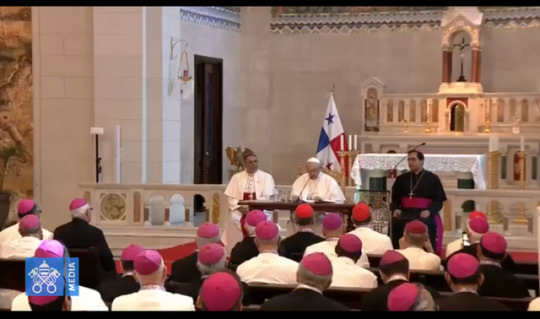
24th January >> (@RomeReports) #PopeFrancis #Pope Francis Pope's full speech to Central American bishops
Dear Brothers,
I thank Archbishop José Luis Escobar Alas of San Salvador for his words of welcome in the name of all. I am happy to be able to be with you and to share in a closer and more direct way your hopes, projects and dreams as pastors to whom the Lord has entrusted the care of his holy people. Thank you for your fraternal welcome.
Meeting with you also gives me the opportunity to embrace your peoples and feel closer to them, to make my own their aspirations, but also their disappointments, and above all the unshakable faith that restores hope and encourages charity. Thank you for letting me be close to that tested yet simple faith seen on the faces of your people, who, though poor, know that “God is here; he is not sleeping, he is active, he watches and helps” (SAINT OSCAR ROMERO, Homily, 16 December 1979).
This meeting reminds us of an important ecclesial event. The bishops of this region were the first in America to create a means of communion and participation that continues to bear rich fruit: the Episcopal Secretariat of Central America (SEDAC). It has provided a forum for sharing, discernment and agreement that nurtures, revitalizes and enriches your Churches. Farsighted bishops gave a sign that, far from being merely programmatic, showed that the future of Central America – or of any area of the world – necessarily depends on clear thinking and the ability to broaden horizons and to join in a patient and generous effort to listen, understand, engage and involve. And, as a result, to discern the new horizons to which the Spirit is leading us (cf. Evangelii Gaudium, 235).1
In the seventy-five years since its establishment, SEDAC has sought to share in the joys and sorrows, the struggles and the dreams of the peoples of Central America, whose history has been interwoven with and forged by the history of your own faithful. Many men and women, priests, consecrated and lay, have devoted their lives and even shed their blood to keep the Church’s prophetic voice alive in the face of injustice, the spread of poverty, and the abuse of power. They remind us that “those who really wish to give glory to God by their lives, who truly long to grow in holiness, are called to be single-minded and tenacious in their practice of the works of mercy” (Gaudete et Exsultate, 107). And this, not simply as almsgiving, but as a true vocation.
Among these prophetic fruits of the Church in Central America, I am happy to mention Saint Oscar Romero, whom I recently had the privilege of canonizing during the Synod on Young People. His life and his teachings remain a constant source of inspiration for our Churches and, in a special way, for us as bishops. His episcopal motto, inscribed on his tombstone, clearly expresses the principle that guided his life as a pastor: to think with the Church. It was the compass for his life and fidelity, even in times of great turmoil.
His legacy can become an active and life-giving witness for us, who are likewise called to the daily martyrdom of serving our people, and on it, I would like to base the reflection I am about to share with you. I know that some among us knew Archbishop Romero personally, like Cardinal Rosa Chávez. Your Eminence, if you think that I am mistaken in any of my assessments, you can correct me! To appeal to the figure of Romero is to appeal to the holiness and prophetic character present in the DNA of your particular Churches.
Thinking with the Church
1. Recognition and gratitude
When Saint Ignatius sets out the rules for thinking with the Church, he tries to help the retreatant overcome any type of false dichotomy or antagonism that would reduce the life of the Spirit to the habitual temptation to make God’s word serve our own interest. This can give the retreatant the grace to recognize that he is part of an apostolic body greater than himself, while at the same time being aware of his own strengths and abilities: an awareness that is neither feeble nor selective or rash. To feel part of a whole that is always more than the sum of its parts (cf. Evangelii Gaudium, 235), and is linked to a Presence that will always transcend him (cf. Gaudete et Exsultate, 8).
So I would like to focus this preliminary thinking with the Church, along with Saint Oscar, on thanksgiving and gratitude for all the unmerited blessings we have received. Romero instinctively knew how to understand and appreciate the Church, because he loved her deeply as the wellspring of his faith. Without this deep love, it would be difficult to understand the story of his conversion. It was that same love that led him to martyrdom: a love born of receiving an utterly free gift, one that does not belong to us but instead frees us from any pretension or temptation to think that we are its proprietors or its sole interpreters. We did not invent the Church; she was not born with us and she will carry on without us. This attitude, far from encouraging sloth, awakens and sustains boundless and unimaginable gratitude. Martyrdom has nothing to do with faintheartedness or the attitude of those who do not love life and cannot recognize its value. On the contrary, the martyr is one who is capable of incarnating and living fully this act of thanksgiving.
Romero “thought with the Church”, because before all else he loved the Church as a mother who had brought him to birth in the faith. He felt a member and a part of her.
2. A love flavoured by people
This love, loyalty and gratitude brought him to embrace passionately but also with hard work and study, the currents of renewal authoritatively proposed by the Second Vatican Council. There he found a firm guide for Christian discipleship. He was neither an ideologue nor ideological; his actions were born of a thorough familiarity with the Council documents. Against this ecclesial horizon, thinking with the Church meant, for Romero, contemplating her as the People of God. For the Lord did not want to save us alone and apart from others, but to establish a people who would profess him in truth and serve him in sanctity (cf. Lumen Gentium, 9). A people that as a whole possesses, guards and celebrates the “anointing of the Holy One” (ibid., 12), and to whom Romero carefully listened, so as not to be deprived of the Spirit’s inspiration (cf. SAINT OSCAR ROMERO, Homily, 16 July 1978). In this way, Romero showed us that the pastor, in order to seek and discover the Lord, must learn to listen to the heartbeat of his people. He must smell the “odour” of the sheep, the men and women of today, until he is steeped in their joys and hopes, their sorrows and their anxieties (cf. Gaudium et Spes, 1), and in so doing ponder the word of God (cf. Dei Verbum, 13). His must be an approach that listens to the people entrusted to his care, to the point of identifying with them and discovering from them the will of God who calls us (cf. Address at the Meeting on the Family, 4 October 2014). An approach free of dichotomies or false antagonisms, for only the love of God is capable of integrating all our loves in a single feeling and gaze.
For Romero, in a word, to think with the Church means to take part in the Church’s glory, which is to live, heart and soul, the kenosis of Christ. In the Church, Christ lives among us, and so she must be humble and poor, since an aloof, prideful and self-sufficient Church is not the Church of kenosis (cf. SAINT OSCAR ROMERO, Homily, 1 October 1978).
3. Living, heart and soul, the kenosis of Christ
This is not only the Church’s glory, but also a vocation, a summons to make it our personal glory and our path of holiness. Christ’s kenosis is not a thing of the past, but a present pledge that we can sense and discover his presence at work in history. A presence that we neither can nor want to silence, since we know from experience that he alone is “the Way, the Truth and the Life”. Christ’s kenosis reminds us that God saves in history, in the life of each person, and that this is also his own history, from which he comes forth to meet us (cf. SAINT OSCAR ROMERO, Homily, 7 December 1978). It is important, brothers, that we not be afraid to draw near and touch the wounds of our people, which are our wounds too, and to do this in the same way that the Lord himself does. A pastor cannot stand aloof from the sufferings of his people; we can even say that the heart of a pastor is measured by his ability to be moved by the many lives that are hurting or threatened. To do this as the Lord does, means allowing this suffering to have an impact on our priorities and our preferences, on the use of our time and money, and even on our way of praying. In this way, we will be able to anoint everything and everyone with the consoling friendship of Jesus Christ within a community of faith that contains and opens a constantly new horizon that gives meaning and hope to life (cf. Evangelii Gaudium, 49). Christ’s kenosis involves giving up “virtual” ways of living and speaking, in order to listen to the sounds and repeated cries of real people who challenge us to build relationships. Allow me to say this: networks help to build relationships, but not roots; they are incapable of giving us a sense of belonging, of making us feel part of a single people. Without this sense, all our words, meetings, gatherings and writings will be the sign of a faith that failed to accompany the Lord’s kenosis, a faith that stopped halfway along the road.
Christ’s kenosis is young
This World Youth Day is a unique opportunity to go out to encounter and draw even closer to the experiences of our young people, so full of hope and desires, but also many hurts and scars. With them, we can interpret our world in a new way and recognize the signs of the times. For as the Synod Fathers affirmed, young people are one of the “theological sources” in which the Lord makes us know some of his expectations and challenges for the shaping of the future (cf. SYNOD ON YOUNG PEOPLE, Final Document, 64). With them, we will be able to envision how to make the Gospel more visible and credible in the world in which we live. They are like a barometer for knowing where we stand as a community and as a society.
Young people bring with them a restlessness that we need to appreciate, respect and accompany. This is good for us, because it unsettles us and reminds us that a pastor never stops being a disciple and a wayfarer. This healthy restlessness both prods and precedes us. The Synod Fathers recognized this: “Young people, in certain aspects, go ahead of their pastors” (ibid., 66). We should rejoice to see how the seed sown has not fallen on deaf ears. Many of their concerns and insights took root in the family, encouraged by a grandmother or a catechist, or in the parish, in educational or youth programmes. They then grew through hearing the Gospel within lively and fervent faith communities that provided rich soil in which they could flourish. How can we not be grateful to have young people concerned with the Gospel! It whets our desire to help them grow by providing them with more and better opportunities to be part of God’s dream. The Church is naturally a Mother, and as such, she engenders life, bears it in her womb and protects it from all that threatens its growth: a “gestation” that takes place in freedom and for freedom. So I urge you to promote programmes and educational centres that can accompany, support and empower your young people. Snatch them from the streets before the culture of death can entice their young minds and sell them its smoke and mirrors, or offer its chimerical “solutions” to all their problems. Do so not paternalistically, looking down from on high, because that is not what the Lord asks of us, but as true fathers and brothers to all. Young people are the face of Christ for us, and we cannot reach Christ by descending from above, but by rising up from below (cf. SAINT OSCAR ROMERO, Homily, 2 September 1979).
Sadly, many young people have been taken in by easy answers that end up costing dearly. As the Synod Fathers noted, they find themselves boxed in and lacking opportunities, amid highly conflictual situations with no quick solution: domestic violence, the killing of women – our continent is experiencing a plague in this regard – armed gangs and criminals, drug trafficking, the sexual exploitation of minors and young people, and so on. It is painful to observe that at the root of many of these situations is the experience of being “orphaned”, the fruit of a culture and a society run amok. Often families have been broken by an economic system that did not prioritize persons and the common good, but made speculation its “paradise”, without worrying about who would end up paying the price. And so we see our young people without a home, without a family, without a community, without a sense of belonging, easy prey to the first charlatan who comes along.
Let us not forget that “man’s true pain belongs first to God” (George Bernanos, Diary of a Country Priest). Let us not separate what he wanted to unite in his Son.
The future demands that we respect the present, by ennobling it and working to value and preserve the cultures of your peoples. Here too, dignity is at stake: in cultural self-esteem. Your peoples are not the “backyard” of society or of anyone. They have a rich history that needs to be appropriated, valued and encouraged. The seeds of the Kingdom were sown in these lands. We must recognize them, care for them and watch over them, so that none of the good that God has planted will languish, prey to spurious interests that sow corruption and grow rich by plundering the poor. Caring for these roots means caring for the rich historical, cultural and spiritual heritage that this land has for centuries been able to harmonize. Continue to speak out against the cultural and spiritual desertification of your towns that causes a radical poverty, since it weakens their power of resistance, the necessary and vital immunity that preserves their dignity at times of great difficulty.
In your most recent Pastoral Letter, you pointed out that, “our region has recently been affected by a new kind of migration, massive and organized. This has called attention to the reasons for forced migration and to the dangers it entails for the dignity of the human person” (SEDAC, Message to the People of God and All Persons of Good Will, 30 November 2018).
Many migrants have young faces; they are seeking a better life for their families. Nor are they afraid to take risks and to leave everything behind in order to offer them the minimum conditions for a better future. Realizing this is not enough; we need to clearly proclaim a message that is “good news”. The Church, by virtue of her universality, can provide the fraternal hospitality and acceptance that can enable the communities of origin and of destination to dialogue and to help overcome fears and suspicions, and thus to consolidate the very bonds that migrations – in the collective imagination – threaten to break. “Welcoming, protecting, promoting and integrating” can be the four words with which the Church, in this situation of mass migration, expresses her motherhood in the history of our time (cf. SYNOD ON YOUNG PEOPLE, Final Document, 147).
Every effort made to build bridges between ecclesial, parish and diocesan communities, and between your episcopal conferences, will be a prophetic gesture on the part of the Church, which is, in Christ, “a sign and instrument both of communion with God and of the unity of the entire human race” (Lumen Gentium, 1). This will help eliminate the temptation simply to call attention to the problem, and become instead a proclamation of the new life that the Lord gives us.
Let us recall the words of Saint John: “If anyone has the world’s goods and sees his brother in need, yet closes his heart against him, how does God’s love abide in him? Little children, let us not love in word or speech but indeed and in truth” (1 Jn 3:17-18).
All of these situations raise questions; they are situations summoning us to conversion, solidarity and decisive efforts to educate our communities. We cannot remain indifferent (cf. SYNOD ON YOUNG PEOPLE, Final Document, 41-44). Whereas the world discards people, as we are painfully aware, Christ’s kenosis does not. We have experienced this, and we continue to experience it in our own flesh through forgiveness and conversion. This tension requires that we constantly ask ourselves, “Where do we wish to stand?”
The kenosis of Christ is priestly
We all know about Archbishop Romero’s friendship with Father Rutilio Grande, and how much he was affected by his assassination. It seared his heart as a man, a priest and a pastor. Romero was no human resources manager; that was not how he dealt with individuals or organizations, but as a father, a friend and a brother. He can serve as a yardstick, however daunting, to help us measure our own hearts as bishops and ask, “How much does the life of my priests affect me? How much do I let myself be impacted by what they experience, grieving when they suffer and celebrating their joys? The extent of ecclesial functionalism and clericalism – which represent a caricature and perversion of ministry – can start to be measured by these questions. This has to do not with changes in style, habits or language – all of which are certainly important ��� but above all with the time we bishops make to receive, accompany and sustain our priests, “real time” to care for them. That is what makes us good fathers.
Our priests are normally the ones responsible for making their flock the people of God. They are on the front lines. They shoulder the burden and the heat of the day (cf. Mt 20:12), exposed to an endless number of daily situations that can wear them down. So they need our closeness, our understanding and encouragement, our fatherhood. The outcome of our pastoral work, evangelization and mission does not depend on the material means and resources at our disposal, or on the number of our events and activities, but on the centrality of compassion: this is one of the unique things that we as Church can offer our brothers and sisters. Christ’s kenosis is the supreme expression of the Father’s compassion. Christ’s Church is the Church of compassion, and that begins at home. It is always good to ask ourselves as pastors, “How much does the life of my priests affect me?” Am I able to be a father, or am I content to be a mere executive? Do I let myself be bothered? I think back on what Benedict XVI told his compatriots at the beginning of his pontificate: “Christ did not promise us an easy life. Those looking for comfort have dialed the wrong number. Rather, he shows us the way to great things, to goodness, to an authentic human life” (BENEDICT XVI, Address to German Pilgrims, 25 April 2005).
We know that our work, our visits and meetings – especially in parishes – have a necessarily administrative component. This is part of our responsibility, but it does not mean that we should spend all our limited time on administrative tasks. When visiting, the most important thing – the one thing we cannot delegate – is “listening”. Many of our everyday tasks we ought to entrust to others. What we cannot delegate, however, is the ability to listen, the ability to keep track of the good health and the lives of our priests. We cannot delegate to others the door that must be open to them. An open door that invites trust rather than fear, sincerity rather than hypocrisy, a frank and respectful exchange rather than a stern monologue.
I recall the words of Rosmini: “There is no doubt that only great men can form other great men... In the early centuries, the bishop’s house was the seminary of priests and deacons. The presence and saintly life of their prelate turned out to be a radiant, constant and sublime lesson, in which one learned theory from his learned words and practice from his diligent pastoral outreach. So the young Athanasius learned from Alexander, and so many others in like manner” (ANTONIO ROSMINI, The Five Wounds of the Holy Church).
It is important that the parish priest encounter a father, a shepherd in whom he can see a reflection of himself, not an administrator concerned about “reviewing the troops”. It is essential that, despite differing viewpoints and even eventual disagreements and arguments (which are normal and to be expected), priests should perceive their bishop as someone who is unafraid to get involved, to confront them, to encourage them and be an outstretched hand when they are bogged down. A man of discernment able to guide and to find practical and possible ways to move forward during the difficult times in each person’s life.
The word “authority” is derived from the Latin root augere: “to increase, promote, advance”. The authority of a pastor is based on his ability to help others to grow, to give priority to his priests rather than himself (for that would simply make him a confirmed bachelor). The joy of a father and pastor lies in seeing his children grow and become fruitful. Brothers, let this be our authority and the sign of our fruitfulness.
The kenosis of Christ is poor
Brothers, thinking with the Church means thinking with our faithful people, the suffering and hope-filled people of God. It means realizing that our ministerial identity is born and understood in the light of this unique and constitutive sense of our identity. Here I would repeat to you the words Saint Ignatius wrote to the Jesuits: “Poverty is a mother and a wall”; it gives birth and it encloses. A mother, because it asks us to be fruitful, to give life, to be able to give of ourselves in a way impossible for hearts that are selfish or avaricious. A wall because it shields us from one of the most subtle temptations we can face as consecrated persons. That is spiritual worldliness, which puts a religious and “pious” veneer over the desire for power and influence, over vanity and even pride and arrogance. A wall and a mother that can help us be a Church that is increasingly free because centred in the kenosis of her Lord. A Church that does not want her strength to be – as Archbishop Romero used to say – in the backing of the powerful or political leaders – but advances with noble detachment, relying only on the true strength born of the embrace of the crucified Jesus. This translates into clear and practical signs, it challenges us and calls us to examine our consciences about our decisions and priorities in the use of our resources, influence and position. Poverty is a mother and a wall because it keeps our hearts from slipping into concessions and compromises that sap the freedom and courage that the Lord demands of us.
Brothers, as we now conclude, let us place ourselves beneath the mantle of the Blessed Virgin. Together let us ask her to keep watch over our hearts as shepherds. May she help us to be ever better servants of the body of her Son, the holy and faithful people of God that journeys, lives and prays here in Central America.
May Jesus bless you and may Our Lady protect you. And please, do not forget to pray for me.
Thank you very much.
2 notes
·
View notes
Text
Reflection 09:
In chapter 23 Ben Chapell writes an interesting article on lowriders, and the publics of such a community. He details how misunderstood the community is, and how some outside judgments tend to obstruct what it means to be involved with a lowrider club or even own one. Chapell talks about the film “Machete” and how the movie depicts lowriders as vehicles of violence. And because of films like these, there is a negative stereotype that follows lowriders. Chapell states, “these include lowriders as a threatening urban force, characterized by their style that is both baroque in its elaboration and effortlessly cool, but also by a capacity and willingness to do lethal violence. It encapsulates a great deal related to long-standing American fascinations with urban, minoritized vernacular culture, not to mention the national obsession with racialized bodies and aesthetics in general, and proffers to its audience the pleasure of recognizing these things.”
Chapell follows this point with how the lowrider club's president, Alex Vargas, and an associate of his, came by Chapell's house to give him and his wife a gift for their baby, and he got to know Vargas. He was shocked, impressed and thankful to these men for giving them such a gift and going out of their way to welcome him to the club and area. This is where Chapell argues that, “people who practice lowrider style create and maintain not only a spectacular aesthetic tradition, but particular kinds of sociality—including both resistance and kinship—that amount to an enacted and emergent concept of community.”

https://www.youtube.com/watch?v=vcyzsRhgmkg
I feel I should express first that I am not interested in cars. All cars look the same to me, and there are small, medium and large cars just like the drink size you can pick at a fast food restaurant. My exposure to lowriders was Ramone from cars. Before reading this chapter, as well as “From Our Land to Our Land” by Luis J. Rodriguz, I knew nothing about lowriders except for the stereotypes my father would say about them. And because I knew my father was just stereotyping, like he does for everything, I never took what he said seriously.
But after reading and learning about the culture and community behind lowrider cars I have a whole new sense of respect for them. It is nice to know that there is such a huge community that allows people to gather and give them a sense of belonging.

It reminds me of when I started taking my dog, Wallenby, to pitbull play groups. He is a 3 year old pitbull-bull dog mix, and he is often stereotyped as a mean vicious dog due to pitbulls being used for dog fighting in the past. But what people forget is that in the 1930s and 40s, pitbulls were the family dog to have before they were used in dog fights. Now the stigma against pitbulls is slowly going away, but it is still there.

My doggo has anxiety problems that come off as aggression, but Wallenby isn’t aggressive, he is just afraid. But ever since we started going to training I have a community you support and understands what my dog is going through, and respects his space. It is nice to be surrounded by people who don’t judge Wallenby negatively because he is a pitbull with anxiety problems.
Learning more about lowriders really warmed my heart and somehow reminded me of my dog. I wish people would take the time to educate themselves more before believing, following, and creating stereotypes that are false.
In Chapter 24 by Rachel Gonzales Martin, she discusses how Quinceañeras are very popular among the Latinx community, being essentially social markers for girls. She explains in detail how these celebrations being brought into the limelight tend to obscure what actually happens in the original tradition. You could say that Western culture tries to sell the Latinx community its celebration of the quinceañera. Martin highlights three examples on different production levels to explain this. The first example she stated was from “From Church Blessing to Quinceañera Barbie®: America as ‘Spiritual Benefactor’ in La Quinceañera." She details how Kristen Deiter explains that there are two forces tearing the quinceañera apart. One being the Catholic Church, the other being pop culture and what makes it easy to sell.

https://www.amazon.com/Barbie-DWF61-Collector-Quincenera-Doll/dp/B01J124F8U

https://www.ebay.com/p/19012039952
Martin's second example is how in an episode of George Lopez, George's daughter Carmen has to prepare for her quinceañera. The entire episode details how Carmen must get her dress together, and figure out what festivities she wants as her Grandma Benny spouts about what a quinceañera is and how it conflicts with the ideas versus how it actually happens. The third example Rachel uses is in Top Chef, how two teams were meant to put together cuisines for a quinceañera, but it goes horribly wrong and the birthday girl in particular is disappointed in how these two professional chefs couldn't put together traditional Mexican cuisine.

Overall, it was very interesting to learn about quinceañeras, how they have changed, and how they were portrayed on television. I for one was definitely that ignorant child who was jealous of my friends who got to have quinceañeras. In middle school I had a few friends who all they talked about was their fifteenth birthday and how that was more important than prom or any school dance. I got to go to one when I was fourteen and we walked around Old Town Fort Collins, and we dressed fancy and the whole night we walked around old town in our matching dresses, and it was a blast. But I didn’t know or realize at the time how meaningful the experience was. Looking back, my friend at the time, she was more excited about the big event of dressing up, having us go around and celebrate her birthday rather than the meaning of the event. And I for one was a foolish fourteen year old who wished that her friends' family would adopt her so I could have a quinceañera. I was mostly jealous because my family never really celebrated my birthday, and most years they forgot it. So I was jealous of how the whole day was dedicated to celebrating my friend's birthday. I didn’t understand the meaning, significance and the importance of a quinciñeara. I still talk with my friend occasionally and I was talking to her about what I’ve been learning in this class, and she said that she was a foolish fifteen year old too, that she took for granted all the hard work her parents put into quinciñeara and she wish she could go back and be more grateful for it, then how she was back then. It’s been twelve years since her birthday, and we both look back on it as a fun night, but after learning about quinciñearas, I wish I could go back in time to my ignorant foolish self to educate myself rather than be jealous of my friend.
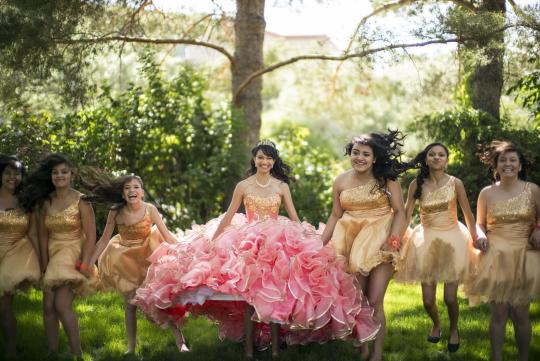
In Chapter 25 by Ellie D. Hernandez discusses the term Joteria and the Association of Joteria Arts and Activism Scholarship (AJAAS) to further illustrate the politics of representation in media, arts, and activism of Chicanx, Latinx and indigenous people. The goal of term joteria is to attend to the larger perspective of intersectionality, issues and concerns of Chicanx, Latinx and indigenous people who identify as lgtbqa. “The mission of AJAAS is to “envision a world that affirms Joteria consciousness and that celebrates multiple pathways for generating knowledge, sharing experiences, and becoming catalysts for social change. We seek to live in a world free of all forms of ideological, institutional, interpersonal and internalized oppression.” The term joteria is different from queer because it focus’ on Chicanx, Latinx, and indigenous experience as opposed to the mainstream U.S. LGBTQA Studies.
I also found it interesting how “coming out” is not necessarily needed or as prevalent in Mexico as compared to the States. Hernandez comments that, “In the United States, quite literally, people “come out” to their partners, but also to the rest of the world. In Latinx culture, one’s sexuality is a private matter and not a common practice to publicly celebrate a presumed private matter. The difference is that U.S. culture adopts a sexual identity that is more akin to a rebirth that is then treated as a public celebration, and this is not the case in most Latinx cultures where sexuality is as personal as going to the bathroom or having an intimate conversation.”
I had a hard time agreeing with this statement. As I mentioned before, coming out to my family was very difficult for me. I honestly didn’t want to do it, and the only person I directly told was my mother. She was the one who told the rest of my family. And my father blatantly said that it was too difficult for him to use “they/them” pronouns in relation to my partner. “Coming out” was not a celebration for me. If I could, I wouldn’t talk about it ever of make a big deal out of it, but now that my family knows they ARE making a big deal out of it, and making a big deal out of my partner being nonbinary. While my partner has said that they never really cared for family approval for their sexual and gender identity, and just came out with it regardless of what acceptance would be met… for me it matters. I want my family to respect my partner and everything that comes with it. I’m so unbearably frustrated with my father for being so lazy and not wanting to even try to use “they/them” pronouns that I feel at a loss. While it was interesting to learn how “coming out” typically occurs in Mexico, I was frustrated with the stereotype that it's a rebirth or extravagant celebration in the States. For me it wasn’t a rebirth because I have always been “not straight” I just finally reached a point where I wanted to share this private information about myself with others. But now everyone in my family looks at me differently. Like I am a new person. There is nothing new about me. I shared a piece of information about myself that was new. I am still the same person I was before I shared my sexual orientation. I just happen to not be straight.
0 notes
Link
Vatican City, Mar 14, 2021 / 05:00 am MT (CNA).- Pope Francis offered Mass in St. Peter’s Basilica on Sunday to mark 500 years of Catholic faith in the Philippines.
“Dear brothers and sisters, 500 years have passed since the Christian message first arrived in the Philippines. You received the joy of the Gospel: the good news that God so loved us that he gave his Son for us. And this joy is evident in your people. We see it in your eyes, on your faces, in your songs and in your prayers,” Pope Francis said in his homily on March 14.
“I want to thank you for the joy you bring to the whole world and to our Christian communities,” the pope said.
The first Catholic Mass and first baptism took place in the Philippines in the year 1521. Today, the Philippines has the third largest number of Catholics in the world. An estimated 86% of the 108 million population of the Philippines is Catholic.
“On this very important anniversary for God’s holy people in the Philippines, I also want to urge you to persevere in the work of evangelization – which is not the same as proselytism, which is another thing. The Christian proclamation that you have received needs constantly to be brought to others. The Gospel message of God’s closeness cries out to be expressed in love for our brothers and sisters,” the pope said.
Filipino Catholics who live in Rome attended the Mass at the Altar of the Chair in St. Peter’s Basilica, which was also live-streamed for people to watch around the world.
Italy has one of the largest populations of Filipino migrant workers in western Europe with over 165,000 overseas Filipinos living in the country as of 2014.
Pope Francis reflected: “I recall the many beautiful experiences of families here in Rome – but also throughout the world – where your discreet and hardworking presence became a testimony of faith in the footsteps of Mary and Joseph. For God loves to bring the joy of faith through humble, hidden, courageous and persevering service.”
Mass began with a procession of eight representatives of the Filipino community dancing and carrying the cross of Magellan and the Holy Child of Cebu.
The pope encouraged Filipino Catholics around the world to continue evangelizing with joy.
“Never be afraid to proclaim the Gospel, to serve and to love,” Francis said.
There were no native clergy for the first 300 years of Catholicism in the Philippines. In 1905, the first Filipino-born bishop, Jorge Imperial Barlin, was appointed. Barlin is buried in Rome, where he died during an ad limina visit in 1909.
In his homily, Pope Francis reflected on the words from the Gospel of John: “God so loved the world that he gave his only-begotten Son.”
The pope said: “Precisely because he loves us so much, God gives himself; he offers us his life. Those who love always come out of themselves. ... Love always offers itself, gives itself, expends itself."
“That is the power of love: it shatters the shell of our selfishness, breaks out of our carefully constructed security zones, tears down walls and overcomes fears, so as to give freely of itself. ... That is how lovers are: they prefer to risk self-giving over … self preservation. And that is why God comes ... to us: because he ‘so loved’ us. His love is so great that he cannot fail to give himself to us.”
In most dioceses in the Philippines, the anniversary year will be inaugurated on Easter Sunday, April 4, after nine years of preparation. The dioceses have designated certain churches as special pilgrim churches for the year.
“It is not only what we can make or earn that matters; in the end, it is the love we are able to give,” the pope said.
“Sometimes we look for joy where it is not to be found: in illusions that vanish, in dreams of glory, in the apparent security of material possessions, in the cult of our image,” he said. “But life teaches us that true joy comes from realizing that we are loved gratuitously, knowing that we are not alone, having someone who shares our dreams and who, when we experience shipwreck, is there to help us and lead us to a safe harbor.”
The Mass was attended by Cardinal Luis Antonio Tagle, prefect of the Congregation for the Evangelization of Peoples and the former archbishop of Manila.
Before the final blessing, Cardinal Tagle addressed a greeting to Pope Francis, and the pope was given two gifts by the people.
“We bring you the filial love of Filipinos in the 7,641 islands of our country. There are more than ten million Filipino migrants living in almost one hundred countries in the world. They are united with us this morning,” Tagle said.
The cardinal from the Philippines teared up as he spoke to the pope and the people.
“From 1521 to 2021, we see gift upon gift. We thank God for the bearers of the gift these 500 years: the pioneering missionaries, the religious congregations, the clergy, the grandmothers and grandfathers, the mothers and fathers, the teachers, the catechists, the parishes, the schools, the hospitals, the orphanages, the farmers, the laborers, the artists, and the poor whose wealth is Jesus," he said.
0 notes
Text
The Rain Festival Regarding Cham
The rain event (Da Lat) is among the important festivals inside the Cham folk traditions. The festival will be held in Might within the Champa Mountains and estuaries like Tan, Lam Ngu, and Ca Em. The main focus of Da Lat is to help those people who are suffering from poverty plus hunger in Cham country. It will be also a moment regarding offering food as gifts for the deities of Cham. The particular deity offerings include fruits and veggies for Cham gods. Additionally they bring rainwater and prosperity to Cham land. Presently there are many items that take place in Da Lat, the particular biggest of which is the annual 'Kuek Lai' ceremony. Typically the key into a celebration is a ritualistic gathering where Cham gods offer presents of rain, fruits, and vegetables. Typically the deities then shower favors on the poor, the needy, the sick, plus the homeless. A number of occasions occur throughout typically the rain season inside Da Lat. A single of these occasions may be the 'Kuek Lui'. This ceremony, furthermore known as the particular 'Kuek Lai' celebration, is the only occasion where typically the monks of Cham, along with parents of nearby villages, pray to the particular deities of Cham to assist the individuals they are serving. The people provide food and prayers, in addition to the gods after that give them rain and blessings. In addition to the Kuek Lui service, the rain event also celebrates other important occasions and events. The main event during the particular rain season will be the 'Uang Ong Tung', which is a grand procession. It usually involves the burning associated with a temple in addition to the scattering regarding ashes at the site. It is likewise believed to bring very good luck. The fireplace has been lit in a area outside typically the temple, and typically the procession is directed by the ruler, or the head from the district. One more major event during the rainy season is the rainwater dance. The Rainfall dance is an talent that requires the dancers wearing flowing red clothing. The colors are accustomed to signify the down pours. It is kept outdoors in public parks as well as other general public places, to express emotions of joy in addition to happiness. In addition to the outfits, there are goggles that also symbolize the mood in the festival. There are usually several places of which are considered sacred to the Gods of Cham within Da Lat. The main temple inside Cham, located in Color is called Color Hau Thong. This specific temple was developed during the reign of Cham California king Cham himself. Within addition, there are also tombs of the gods of various Cham families, known because 'Kuek Ching'. To the south of Tan Hau Wide lace may be the temple regarding the Great Goddess of Water and Fortune in Suntan Tien in De uma Lat. This temple is located within an area that is surrounded by rich mountains. This temple holds the waters of the water Lao, which runs into the Mekong Water.

The rain event takes place on the first day associated with the rainy season. This is identified as 'Da Lat Lai', or 'The Opening from the Eye'. The entire area and the complete province are embellished with red, yellow-colored and orange clothing and decorations. People wear their clothes like they are usually on a party, but the colours and designs are a lot more festive and enjoyable than the conventional Chinese ones. The most important rituals within this ceremony is the particular 'Chai Kua', the dance that requires a boy playing the drums whilst a female performs to attract the Lord of rain and a number of additional deities. In this wedding ceremony, the boy will certainly try to appeal to the rain our god by singing and dancing in entrance of him. Within order to perform this, he must ribbon and bow to the our god. The girl and then sings a song of fortune plus wishes rain after the city and the particular region. When the rainwater has come, the folks celebrate in large numbers. The rain dance is one associated with the main events in Da Bekv?m during the rainy season. The songs and the celebration can sometimes come to be quite noisy, plus the sounds of the drums plus the women's singing can often be quite distracting. Should you be having trouble getting to sleep, a person may want in order to take a quick sleep throughout the celebration in order to obvious your mind. The particular rain god is also believed to give protection from misfortune and evil spirits. The rain dance festival of Da Lat is a new symbol of appreciation to the rains that bring wealth. Due to the rains, the people of De uma Lat are in need of rainfall, especially during typically the rainy season. On the other hand, it is not really uncommon to see a person within the streets with simply a few cloths to protect them coming from the rain.
0 notes
Text
The particular Rain Festival Associated with Cham
The rain celebration (Da Lat) is one of the important festivals within the Cham folk tradition. The festival is usually held in Might inside the Champa Mountains and estuaries like Tan, Lam Ngu, and Ca Na. The main objective of Da Lat is to be able to help those who are struggling from poverty in addition to hunger in Cham country. It is also a time with regard to offering food as gifts for the deities of Cham. The deity offerings contain fruits and fresh vegetables for Cham gods. In addition they bring rain and prosperity to be able to Cham land. There are many things that take place in Da Lat, typically the biggest of which usually is the annual 'Kuek Lai' ceremony. Typically the key to some celebration is a ritualistic gathering where Cham gods offer items of rain, fresh fruits, and vegetables. The particular deities then bath favors on typically the poor, the clingy, the sick, in addition to the homeless. A number of events take place throughout typically the rain season within Da Lat. 1 of these occasions may be the 'Kuek Lui'. This ceremony, also known as the particular 'Kuek Lai' celebration, is the just occasion where the particular monks of Cham, along with parents of nearby villages, pray to the deities of Cham to help the folks they are helping. The people offer as well as prayers, in addition to the gods then give them rainfall and blessings. As well as the Kuek Lui wedding ceremony, the rain festival also celebrates some other important occasions and events. The major event during the rain season will be the 'Uang Ong Tung', which will be a grand procession. It usually involves the burning of a temple and the scattering regarding ashes on the web site. It is furthermore believed to bring great luck. The fire provides been lit in an area outside the particular temple, and typically the procession is directed by the ruler, or the mind of the district. Another major event throughout the rainy season is the rainwater dance. The Rain dance is a great art that entails the dancers wearing flowing red garments. The colors are accustomed to signify the rains. It is placed outdoors in general public parks along with other general public places, to convey feelings of joy plus happiness. Besides the outfits, there are goggles that also represent the mood of the festival. There are several places that are considered holy to the Gods of Cham in Da Lat. Typically the main temple inside Cham, situated in Color is called Color Hau Thong. This temple was constructed during the rule of Cham Ruler Cham himself. Inside addition, there are also tombs of the gods of various Cham families, known as 'Kuek Ching'. To be able to the south regarding Tan Hau Wide lace will be the temple associated with the Great Goddess of Water plus Fortune in Suntan Tien in Da Lat. This forehead is located inside a location that is surrounded by rich mountains. This brow holds the oceans of the water Lao, which flows in to the Mekong Lake. The rain celebration occurs on the particular first day of the rainy season. This is recognized as 'Da Lat Lai', or 'The Opening from the Eye'. The entire city and the entire province are embellished with red, yellow-colored and orange clothes and decorations. Individuals wear their clothing like they are usually on a party, but the colors and designs are more festive and enjoyable than the traditional Chinese ones. Probably the most important rituals within this ceremony is typically the 'Chai Kua', the dance that entails a boy enjoying the drums whilst a female sings to draw the Lord of rain and a selection of other deities. In this wedding ceremony, the boy may try to catch the attention of the rain our god by singing in addition to dancing in front of him. In order to carry out this, he or she must bow to the our god. The girl and then sings a music of fortune and wishes rain after the location and typically the region. If the rainfall has come, individuals celebrate in large numbers.

The rain dance is one of the main ceremonies in Da Lat during the wet season. The songs and the special event can sometimes come to be quite noisy, and the sounds regarding the drums as well as the women's singing can be quite distracting. Should you be having trouble obtaining to sleep, you may want in order to take a nap throughout the celebration in order to obvious your mind. The rain god will be also considered to give protection from misfortune and evil mood. The rain party festival of De uma Lat is a symbol of appreciation to the down pours that bring prosperity. Due to the rains, the people of Da Lat are within need of rainwater, especially during the rainy season. However, it is not uncommon to notice a person within the streets with simply a few rags to guard them through the rain.
0 notes
Photo
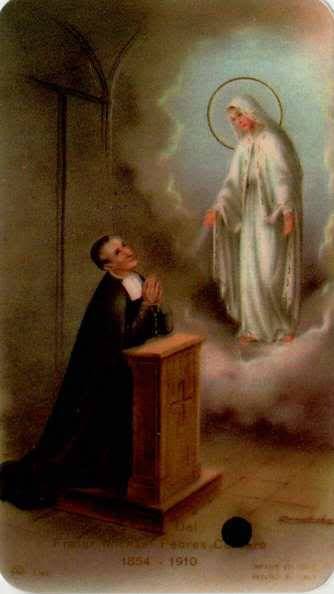
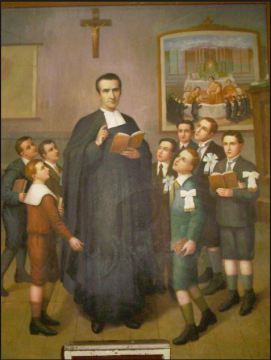
Saint of the Day – 9 February -St Miguel Febres Cordero Muñoz F.S.C. (1854-1910 aged 55) Patron of Brothers of the Christian Schools/Christian Brothers, Ecuador, Teachers, Writers.
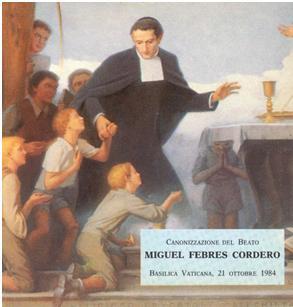
His name uses Spanish naming customs: the first or paternal family name is Febres-Cordero and the second or maternal family name is Muñoz.
Francisco Luis Febres-Cordero y Muñoz (7 November 1854 – 9 February 1910) , known as Saint Miguel Febres Cordero and more popularly as Brother Miguel. He became a professed member of the Brothers of the Christian Schools, colloquially known as the La Salle Brothers. He assumed the name Miguel upon his admittance into the order. He resided in his native home of Ecuador for almost four decades where he promoted education and evangelisation before he relocated to Spain where he continued to perform his duties for his order. He also became a prolific writer and penned various manuals and odes amongst other publications. Pope Paul VI beatified him on 30 October 1977 and Pope John Paul II canonised him almost a decade later on 21 October 1984 as the first Ecuadorian saint. He remains a national hero in his native land and his tomb has become a site of pilgrimage. His liturgical feast is celebrated on an annual basis on the date of his death.
How would you like to have a teacher who was described like this: he was kind to everyone and treated all of his students, rich or poor, the same. He liked to be with the students, and they liked to be with him. All of the children in the school loved him. That is exactly what a saint said about today’s saint.
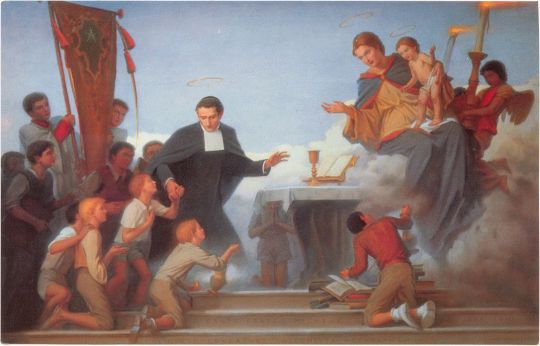
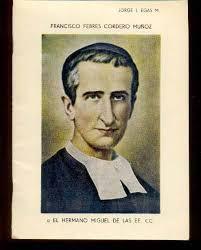
Miguel was born in Ecuador where his family was influential in politics. As a child, he suffered from a disability that kept him from standing and walking like other children. He could not stand alone until he was five years old, when it was said he experienced a vision of Our Lady. Miguel was educated at home until he was 14, then went to school taught by the Christian Brothers. He was a gifted student and when he was only 17, he published the first of many books, a textbook on Spanish grammar.
Miguel joined the Christian Brothers and was a teacher for 32 years in Ecuador. As a teacher he was always looking for new ways to present the material. He wanted to make the lessons and work more pleasant for students. He laughed with his students and was understanding and patient.
Brother Miguel continued writing and his scholarly works in literature earned him academic honours in South America and Europe. But Brother Miguel did not think he was very important. He thought the most important ones were his students.
In 1907, Miguel was called to the Motherhouse in Belgium to translate some books. On the way he stopped for a short visit in New York City. From Belgium he went to a school in Spain where young men were preparing to become Christian Brothers. In 1909, during the Spanish Revolution, the school came under attack. Brother Miguel took the Blessed Sacrament from the chapel and led the novices across the bay to safety in Barcelona. He died of pneumonia a year later. He laid to rest in Ecuador and the people welcomed him home with a great procession through the streets of Quito, Ecuador. He is, a national hero and an extremely busy saint, answering the prayers of many.
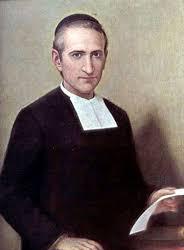
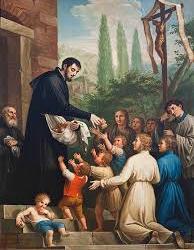
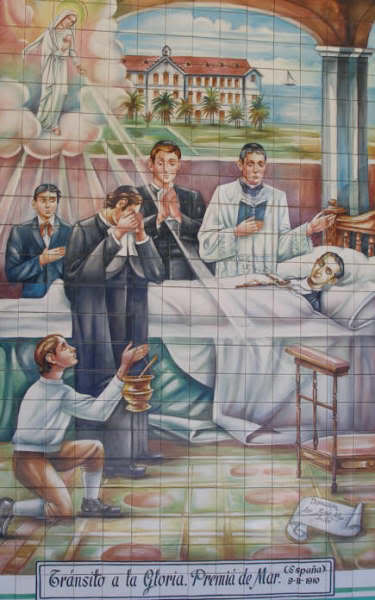
3 notes
·
View notes
Text
Jermall Charlo vs. Juan Macias Montiel Final Press Conference Quotes And Photos
(adsbygoogle = window.adsbygoogle || []).push({});
Follow @Frontproofmedia!function(d,s,id){var js,fjs=d.getElementsByTagName(s)[0],p=/^http:/.test(d.location)?'http':'https';if(!d.getElementById(id))(document, 'script', 'twitter-wjs');
Published: June 18, 2021
HOUSTON – Unbeaten WBC Middleweight World Champion Jermall Charlo went face-to-face with the hard-hitting Juan Macias Montiel Thursday during the final press conference before they meet live on SHOWTIME this Saturday, June 19 from Toyota Center in Houston headlining a Premier Boxing Champions event.
Thursday’s press conference also featured rising lightweight contender Isaac Cruz and former world champion Francisco Vargas, who meet in the 10-round co-main event, plus former super bantamweight world champion Angelo Leo and Mexican contender Aaron Alameda, who battle in the SHOWTIME CHAMPIONSHIP BOXING telecast opener at 9 p.m. ET/6 p.m. PT.
Saturday’s event is promoted by Lions Only Promotions and TGB Promotions. Tickets for the live event are on sale now and can be purchased at toyotacenter.com.
Charlo has established himself as a force in two divisions and will seek to thrill his hometown crowd against Mexico’s Montiel, in a first-of-its-kind Juneteenth Day boxing celebration. Charlo and his twin brother Jermell Charlo were given a proclamation from Houston Mayor Sylvester Turner on Wednesday, declaring this Juneteenth Day “Jermall and Jermell Charlo Day” in their hometown.
Here is what the fighters had to say Thursday:
JERMALL CHARLO
“I’m blessed to be in this position to showcase my talent. Camp was awesome. I’ve had great sparring throughout and I’m ready.
“On Saturday you can expect a hard fight. If he comes at me the same way everyone comes at me, you’re going to see the same Jermall Charlo. I can deliver explosive knockouts, go 12 rounds or beat you down from start to finish.
“If he’s strong like they say he is, I’ll show you my movement and attack the body. I have all the skills and ability of every other great middleweight throughout history.
“He’s strong, but I fight strong fighters. I spar heavy fighters all the time. I’m strong too, right? I’m not worried about his power. This is my hometown, and I’m going to stay champion. The talk about his power is just going to make me fight harder.
“This is a real fight. This isn’t James Kirkland or Hugo Centeno Jr. You’re only as good as your last fight. There are levels to this and I’m going to show what level I’m on Saturday. If he’s that good and if his team has a game plan that no one else has used before, then I’ll accept it. But I’ve trained hard for this fight and I’m going to show it.
“I’m honored to be fighting on Juneteenth with the opportunity to represent my people. I get to fight for all my ancestors who fought before me. I love it and I’m focused.
“Every fighter wants the belt. I remember being in that position, but I’m even hungrier now. I’m not sleeping on anybody. I’m still young in my career. I can’t make any mistakes right now. I know he’s coming to fight.
“I am not overlooking Montiel. Saturday is a holiday and that’s great. But I put my life on the line every time I get into the ring. I can’t overlook this guy. He says he trained hard, but I trained way harder.
“June 19 is going to be a party. Everyone get ready for a show. I’m coming for a fight. I’m putting it all on the line. This is going to be one of the fights where I do what I say I’m going to do.”
JUAN MACIAS MONTIEL
“I had an unbelievable training camp. It was the best camp of my entire career. It was very tough physically, but I feel great right now. We’ve worked hard to bring another world champion to Mexico.
“I plan to show everything we’ve worked on in training camp on Saturday night. We’ve worked on a variety of techniques and styles to use in this fight. I’m excited to show them in the ring.
“I was the underdog in the James Kirkland fight and everyone saw what happened. I wasn’t training the way I do now when I fought Hugo Centeno Jr. to a draw. I know that I have the best middleweight in front of me, so I knew that I had to train harder than ever for this fight.
“I believe that if he wants to trade punches with me, he’s going to be sorry that he chose that strategy.
“I’m very thankful for this opportunity. On Saturday night I’m going to fulfill my dream of becoming a world champion. No matter what it takes.”
ISAAC CRUZ
“I had a great two and a half months of training and I’m ready for Saturday night. Vargas has a similar style to mine. We both like to stand in front of our opponent, so it’s going to be a great fight.
“I’m planning to put Mexico on top once again. ‘Pitbull’ Cruz is going to show up like I always do. This is going to be a war.
“I plan to deliver a wonderful gift for all of the fans in Houston. Just like I delivered in San Antonio two fights ago, I’m going to show everyone that same power.
“I’m coming to win and I’m ready to have my hand raised. I’m not looking past Vargas, but I’ll be ready for whoever is next after I win.”
FRANCISCO VARGAS
“I’m very motivated and I can’t wait for Saturday night. I had a great training camp and I know that this is going to be an action-packed fight for the fans.
“We both want to win for our country. Everyone knows what kind of fight this is going to be. Cruz is a strong fighter who comes forward, so I’d say our styles are definitely similar.
“There’s not much that needs to be said. People might think I don’t have anything left, but I’m going to prove on Saturday night that there’s plenty in the tank. Everyone is going to see on June 19.
“This is going to be a very entertaining fight. It definitely could steal the night. It’s shaping up to be that type of fight.
“When you’ve got two Mexican warriors, you can expect another Fight of the Year. Don’t miss it on Saturday.”
ANGELO LEO
“It’s a pleasure to be fighting in Houston, Texas. I came up short in my last fight, but this camp we’ve improved my strength and conditioning. I’m a lot stronger and a lot wiser from the experience I had against Stephen Fulton.
“Training camp with my dad has been great. We’re ready to go and put on a show for Houston on Saturday.
“I had COVID-19 about six weeks before the Fulton fight. As a fighter, I wanted to put on a show for the fans no matter what. In that fight, I didn’t have the same stamina that I had in the previous fight. I feel fully healed now and we’re going to deliver a good performance.
“I have a lot of motivation knowing that I’ve been champion once and that I can reach that height again. I just want to prove to everyone that I’m still at the top level of this division and a serious threat to anybody.”
AARON ALAMEDA
“We trained very hard for this fight. I got a lot of good experience from the Luis Nery fight and on Saturday I’m going to show everything that I’ve learned.
“It was a great opportunity against Luis Nery. I’m going to let my hands go, leave it all in the ring, and be victorious on Saturday night.
“I’m very motivated by my previous experience against Nery. Everyone will see that I’m willing to do whatever it takes to win in this fight.”
(Featured Photo: Esther Lin/Showtime)
0 notes
Text
Lin-Manuel Miranda’s Passion for Puerto Rico
Lin-Manuel Miranda, the author and star of the award winning play Hamilton who is a cultural hero in both Puerto Rico, where his parents were born, and the United States, scheduled a 3-week performance at the University of Puerto Rico. The play is about the reaction to British colonialism at the time of the Revolutionary War. The university is home to many student protests against American colonialism, and students plan protests given the common themes. If you were responsible for securing the theater, would you: (1) continue to plan performing on the University of Puerto Rico campus, or (2) relocate the San Juan production from the demonstration-prone university to an easier-to-secure off-campus theater? Why? What are the ethics underlying your decision?
The road to Vega Alta is lined with Lin-Manuel Miranda. Literally.
Just next to the arched stone welcome sign is a billboard with a large photo of the “Hamilton” creator, and a hashtag — #YoSoyVegaAlta — meaning “I am Vega Alta.”
This is the town where his father is from, where he and his sister spent summers as kids, where their aunt and uncle still live. It’s also a community that has seen better days — challenged by joblessness and crime and a town center dotted with vacancies.
Now, at the heart of the commercial district, in a space that once housed a disco called the Pink Panther, is La Placita de Güisin, an arcade built by Luis Miranda, Lin-Manuel’s father, who left for New York when he was 18, but never stopped coming back. It features a bakery, a barista and a cafe; there is a gift shop selling Lin-Manuel Miranda merchandise (yes, he has a merchandise line), as well as a mosaic mural depicting him and his grandfather.
Mr. Miranda, preparing to reassume the title role of “Hamilton” for a three-week run that begins in San Juan on Jan. 11, arrived in Vega Alta one rainy Tuesday night this fall like the celebrity he has become. He and his father, accompanied by publicists and staffers and a documentary film crew, took a private plane to the island and then a black S.U.V. to Vega Alta, where they were celebrating local arts organizations the family is assisting as part of their intensified philanthropic efforts in the aftermath of Hurricane Maria, which slammed into Puerto Rico last year.
A dozen amped-up adolescents, some wearing A. Ham hats, cornered him by the mural and, from memory (O.K., one or two of them were peeking at cellphone screens), performed an a cappella version of the musical’s opening number, led by their high school English teacher, Edd Ramos, who has been using the show’s coffee-table tome as a textbook.
Mr. Miranda, sporting Spider-Man sneakers, leapt into the scrum, singing and dancing along with the teenagers, videotaping them as they videotaped him. Then, under a tent erected over a side street, he and his father sat in the front row, nodding their heads and joining the crowd as the singer-songwriter Antonio Cabán Vale, known as El Topo, performed “Verde Luz,” a danza that has come to symbolize Puerto Rican pride.
“He’s like a lighthouse for Puerto Rico now,” said one of the many assembled well-wishers, Alejandro García Padilla, a former governor of Puerto Rico. Mr. García Padilla is an unabashed fan who plays the “Hamilton” cast album in the car while driving his kids to school and has not only seen the musical twice in New York but has also stopped by Trinity Church to visit Alexander Hamilton’s grave. “He is worldwide famous, but he cares about his people, he cares about his country, he cares about Puerto Rico. He doesn’t forget about us.”
But even lighthouses get battered by waves.
Mr. Miranda’s passion for Puerto Rico has also led to controversy — particularly because he supported a debt restructuring plan that is overseen by an unpopular federal oversight board, and then chose a theater for “Hamilton” at the University of Puerto Rico, which is being roiled by the board’s fiscal plan as well as a union dispute. For some, the musical, a blockbuster hit about colonists fighting for independence, offered a tempting opportunity to call attention to their concerns.
So earlier this month, with Mr. Miranda’s blessing but also to his great disappointment, the producers of “Hamilton” decided to relocate the San Juan production from the demonstration-prone university to an easier-to-secure off-campus theater.
‘Questions He’s Always Thinking About’
Lin-Manuel Miranda is a New Yorker, born and bred. He has spent most of his nearly 39 years living in Upper Manhattan; he attended New York public schools, and his career was established on New York’s stages.
But Puerto Rico offers a thread, a theme, a thesis for his life. It’s the homeland where both of his parents grew up. It’s the place he long idealized, where many now idealize him.
As we talked about how Puerto Rico shaped his personal, political and artistic identity, he mused aloud about questions he has grappled with. What does it mean to feel nostalgia for a place you never lived, a place your parents loved but left? How does fame affect the way you see, and are seen, in that place?
“I believe I owe a great deal of who I am to this island,” he said as we drove from a coffee plantation deep in the mountains to the theater in San Juan where he hoped “Hamilton” would be staged.
“It’s a tactile thing. It’s a tempo thing. It’s the pace of life here,” he said when I asked what about Puerto Rico he would want to pass along to his own children — two sons, both very young. “It’s the way the world sounds at night. It’s seeing the stars. It’s this oneness with nature that is very natural and real. It is all the things you cannot get in New York City. And it is its culture, because the kindest people I know are here.”
VERY LONG ARTICLE CONTINUES
0 notes
Text
Newly beatified Guatemalans exemplified courage, cardinal says
New Post has been published on https://pray-unceasingly.com/catholic-living/catholic-news/newly-beatified-guatemalans-exemplified-courage-cardinal-says-2/
Newly beatified Guatemalans exemplified courage, cardinal says
Guatemala City, Guatemala, Oct 30, 2018 / 07:00 pm (CNA).- Presiding at a Mass for the beatification of martyrs Fr. Tullio Maruzzo and Luis Obdulio Arroyo Navarro, a Vatican official prayed that “their martyrdom would inspire in everyone courageous Christian witness, a consistent life and boundless commitment to others.”
Cardinal Giovanni Angelo Becciu, Prefect for the Congregation for the Causes of Saints, celebrated the Mass Oct. 27 in the city of Morales in the Apostolic Vicariate of Izabel in Guatemala.
The cardinal said that “the entire Church in Guatemala is in celebration,” and recalled that while “one was a priest and Franciscan religious of the Friars Minor and the other a faithful lay catechist,” both “shared essential traits of spirituality: a simple and joyful lifestyle, befitting one who is poor in spirit ; ardent zeal for the Gospel, which sustains those who work for peace.”
He also praised “the attentive care for the poor and the valiant defense of the least which distinguishes men of good will. These are traits that constitute for us a message that is ever relevant.”
Becciu emphasized that “Blessed Tullio Maruzzo is a gift of God to your land, he is the good shepherd that the Father sent to care for his flock, to the point of giving his life. He had left his hometown, Lapio di Arcugnano in Italy, to be a witness to the Gospel among you.”
For his part, “Blessed Luis Obdulio Arroyo Navarro was the faithful companion that the Lord placed alongside Fr. Tullio at the time of their martyrdom. He is the mature fruit of your Church of Izabel, that you are reaping in the year you are solemnly celebrating the fiftieth anniversary of the erection of the vicariate! He is the first native martyr of Guatemala!”
The cardinal noted that “the circumstances of the martyrdom of Fr. Tullio and Luis Obdlio are well known. Death was violently inflicted upon them by their assassins because of their hatred for Christ and the Gospel.”
“Fr. Tullio was sensitive to the suffering of the poor campesinos. They were clearing plots in the jungle with great effort and turning it into their own farmland but were being dispossessed of their land time and time again by a few large landowners.
Consequently, Fr. Tullio chose to alleviate their growing poverty, console the discouraged and above all, enlighten consciences in order to clearly reaffirm their just rights according to the teaching of Jesus.”
The pastoral activities of tthe priest, he said, “took on the value of a prophetic and courageous denunciation of the abuses by local powerful people, and so his social work was considered subversive, but he continued carrying out his apostolic work without fear for his life.”
"The sorrowful epilogue took place the afternoon of July 1, 1981, when at the end of an intense day of apostolic work, while he was returning to the parish with the faithful Luis Obdulio, the automobile they were traveling in was stopped, and forced to get out, they were shot dead, riddled with bullets and abandoned on the side of the road,” he said.
“Remember that there is no change in structures without the conversion of hearts and that a parish is not a true parish if it it does not become a place of fraternal encounter among all its members.”
“Never lose sight of the ideal for which Blessed Fr. Tullio and Blessed Luis Obdulio gave their lives: to show the face of a Church, as a sign of hope and rich in the love of God which embraces everyone, but above all the marginalized and the oppressed,” he encouraged.
This article was originally published by our sister agency, ACI Prensa. It has been translated and adapted by CNA.
CNA Daily News – Americas
0 notes
Text

24th January >> (@VaticanNews) #PopeFrancis #Pope Francis to Bishops of Central America: full text
Pope Francis has addressed the Bishops of Central America (SEDAC) in the Church of Saint Francis of Assisi in Panama City. The Pope's meeting with his brother bishops came on the first full day of his apostolic visit to Panama to celebrate World Youth Day 2019.
Pope Francis has addressed members of the Episcopal Secretariat of Central America recalling the glorious history of the Church in the region that counts many men and women, priests, consecrated and lay, who have devoted their lives and even shed their blood to keep the Church’s prophetic voice alive in the face of injustice, the spread of poverty, and the abuse of power.
He also touched on painful and difficult themes, including issues pertaining to migration and endemic violence.
Please find below the full text of Pope Francis' speech:
Dear Brothers,
I thank Archbishop José Luis Escobar Alas of San Salvador for his words of welcome in the name of all. I am happy to be able to be with you and to share in a closer and more direct way your hopes, projects and dreams as pastors to whom the Lord has entrusted the care of his holy people. Thank you for your fraternal welcome.
Meeting with you also gives me the opportunity to embrace your peoples and feel closer to them, to make my own their aspirations, but also their disappointments, and above all the unshakable faith that restores hope and encourages charity. Thank you for letting me be close to that tested yet simple faith seen on the faces of your people, who, though poor, know that “God is here; he is not sleeping, he is active, he watches and helps” (SAINT OSCAR ROMERO, Homily, 16 December 1979).
This meeting reminds us of an important ecclesial event. The bishops of this region were the first in America to create a means of communion and participation that continues to bear rich fruit: the Episcopal Secretariat of Central America (SEDAC). It has provided a forum for sharing, discernment and agreement that nurtures, revitalizes and enriches your Churches. Farsighted bishops gave a sign that, far from being merely programmatic, showed that the future of Central America – or of any area of the world – necessarily depends on clear thinking and the ability to broaden horizons and to join in a patient and generous effort to listen, understand, engage and involve. And, as a result, to discern the new horizons to which the Spirit is leading us (cf. Evangelii Gaudium, 235).
In the seventy-five years since its establishment, SEDAC has sought to share in the joys and sorrows, the struggles and the dreams of the peoples of Central America, whose history has been interwoven with and forged by the history of your own faithful. Many men and women, priests, consecrated and lay, have devoted their lives and even shed their blood to keep the Church’s prophetic voice alive in the face of injustice, the spread of poverty, and the abuse of power. They remind us that “those who really wish to give glory to God by their lives, who truly long to grow in holiness, are called to be single-minded and tenacious in their practice of the works of mercy” (Gaudete et Exsultate, 107). And this, not simply as almsgiving, but as a true vocation.
Among these prophetic fruits of the Church in Central America, I am happy to mention Saint Oscar Romero, whom I recently had the privilege of canonizing during the Synod on Young People. His life and his teachings remain a constant source of inspiration for our Churches and, in a special way, for us as bishops. His episcopal motto, inscribed on his tombstone, clearly expresses the principle that guided his life as a pastor: to think with the Church. It was the compass for his life and fidelity, even in times of great turmoil.
His legacy can become an active and life-giving witness for us, who are likewise called to the daily martyrdom of serving our people, and on it, I would like to base the reflection I am about to share with you. I know that some among us knew Archbishop Romero personally, like Cardinal Rosa Chávez. Your Eminence, if you think that I am mistaken in any of my assessments, you can correct me! To appeal to the figure of Romero is to appeal to the holiness and prophetic character present in the DNA of your particular Churches.
Thinking with the Church
1. Recognition and gratitude
When Saint Ignatius sets out the rules for thinking with the Church, he tries to help the retreatant overcome any type of false dichotomy or antagonism that would reduce the life of the Spirit to the habitual temptation to make God’s word serve our own interest. This can give the retreatant the grace to recognize that he is part of an apostolic body greater than himself, while at the same time being aware of his own strengths and abilities: an awareness that is neither feeble nor selective or rash. To feel part of a whole that is always more than the sum of its parts (cf. Evangelii Gaudium, 235), and is linked to a Presence that will always transcend him (cf. Gaudete et Exsultate, 8).
So I would like to focus this preliminary thinking with the Church, along with Saint Oscar, on thanksgiving and gratitude for all the unmerited blessings we have received. Romero instinctively knew how to understand and appreciate the Church, because he loved her deeply as the wellspring of his faith. Without this deep love, it would be difficult to understand the story of his conversion. It was that same love that led him to martyrdom: a love born of receiving an utterly free gift, one that does not belong to us but instead frees us from any pretension or temptation to think that we are its proprietors or its sole interpreters. We did not invent the Church; she was not born with us and she will carry on without us. This attitude, far from encouraging sloth, awakens and sustains boundless and unimaginable gratitude. Martyrdom has nothing to do with faintheartedness or the attitude of those who do not love life and cannot recognize its value. On the contrary, the martyr is one who is capable of incarnating and living fully this act of thanksgiving.
Romero “thought with the Church”, because before all else he loved the Church as a mother who had brought him to birth in the faith. He felt a member and a part of her.
2. A love flavoured by people
This love, loyalty and gratitude brought him to embrace passionately but also with hard work and study, the currents of renewal authoritatively proposed by the Second Vatican Council. There he found a firm guide for Christian discipleship. He was neither an ideologue nor ideological; his actions were born of a thorough familiarity with the Council documents. Against this ecclesial horizon, thinking with the Church meant, for Romero, contemplating her as the People of God. For the Lord did not want to save us alone and apart from others, but to establish a people who would profess him in truth and serve him in sanctity (cf. Lumen Gentium, 9). A people that as a whole possesses, guards and celebrates the “anointing of the Holy One” (ibid., 12), and to whom Romero carefully listened, so as not to be deprived of the Spirit’s inspiration (cf. SAINT OSCAR ROMERO, Homily, 16 July 1978). In this way, Romero showed us that the pastor, in order to seek and discover the Lord, must learn to listen to the heartbeat of his people. He must smell the “odour” of the sheep, the men and women of today, until he is steeped in their joys and hopes, their sorrows and their anxieties (cf. Gaudium et Spes, 1), and in so doing ponder the word of God (cf. Dei Verbum, 13). His must be an approach that listens to the people entrusted to his care, to the point of identifying with them and discovering from them the will of God who calls us (cf. Address at the Meeting on the Family, 4 October 2014). An approach free of dichotomies or false antagonisms, for only the love of God is capable of integrating all our loves in a single feeling and gaze.
For Romero, in a word, to think with the Church means to take part in the Church’s glory, which is to live, heart and soul, the kenosis of Christ. In the Church, Christ lives among us, and so she must be humble and poor, since an aloof, prideful and self-sufficient Church is not the Church of kenosis (cf. SAINT OSCAR ROMERO, Homily, 1 October 1978).
3. Living, heart and soul, the kenosis of Christ
This is not only the Church’s glory, but also a vocation, a summons to make it our personal glory and our path of holiness. Christ’s kenosis is not a thing of the past, but a present pledge that we can sense and discover his presence at work in history. A presence that we neither can nor want to silence, since we know from experience that he alone is “the Way, the Truth and the Life”. Christ’s kenosis reminds us that God saves in history, in the life of each person, and that this is also his own history, from which he comes forth to meet us (cf. SAINT OSCAR ROMERO, Homily, 7 December 1978). It is important, brothers, that we not be afraid to draw near and touch the wounds of our people, which are our wounds too, and to do this in the same way that the Lord himself does. A pastor cannot stand aloof from the sufferings of his people; we can even say that the heart of a pastor is measured by his ability to be moved by the many lives that are hurting or threatened. To do this as the Lord does, means allowing this suffering to have an impact on our priorities and our preferences, on the use of our time and money, and even on our way of praying. In this way, we will be able to anoint everything and everyone with the consoling friendship of Jesus Christ within a community of faith that contains and opens a constantly new horizon that gives meaning and hope to life (cf. Evangelii Gaudium, 49). Christ’s kenosis involves giving up “virtual” ways of living and speaking, in order to listen to the sounds and repeated cries of real people who challenge us to build relationships. Allow me to say this: networks help to build relationships, but not roots; they are incapable of giving us a sense of belonging, of making us feel part of a single people. Without this sense, all our words, meetings, gatherings and writings will be the sign of a faith that failed to accompany the Lord’s kenosis, a faith that stopped halfway along the road.
Christ’s kenosis is young
This World Youth Day is a unique opportunity to go out to encounter and draw even closer to the experiences of our young people, so full of hope and desires, but also many hurts and scars. With them, we can interpret our world in a new way and recognize the signs of the times. For as the Synod Fathers affirmed, young people are one of the “theological sources” in which the Lord makes us know some of his expectations and challenges for the shaping of the future (cf. SYNOD ON YOUNG PEOPLE, Final Document, 64). With them, we will be able to envision how to make the Gospel more visible and credible in the world in which we live. They are like a barometer for knowing where we stand as a community and as a society.
Young people bring with them a restlessness that we need to appreciate, respect and accompany. This is good for us, because it unsettles us and reminds us that a pastor never stops being a disciple and a wayfarer. This healthy restlessness both prods and precedes us. The Synod Fathers recognized this: “Young people, in certain aspects, go ahead of their pastors” (ibid., 66). We should rejoice to see how the seed sown has not fallen on deaf ears. Many of their concerns and insights took root in the family, encouraged by a grandmother or a catechist, or in the parish, in educational or youth programmes. They then grew through hearing the Gospel within lively and fervent faith communities that provided rich soil in which they could flourish. How can we not be grateful to have young people concerned with the Gospel! It whets our desire to help them grow by providing them with more and better opportunities to be part of God’s dream. The Church is naturally a Mother, and as such, she engenders life, bears it in her womb and protects it from all that threatens its growth: a “gestation” that takes place in freedom and for freedom. So I urge you to promote programmes and educational centres that can accompany, support and empower your young people. Snatch them from the streets before the culture of death can entice their young minds and sell them its smoke and mirrors, or offer its chimerical “solutions” to all their problems. Do so not paternalistically, looking down from on high, because that is not what the Lord asks of us, but as true fathers and brothers to all. Young people are the face of Christ for us, and we cannot reach Christ by descending from above, but by rising up from below (cf. SAINT OSCAR ROMERO, Homily, 2 September 1979).
Sadly, many young people have been taken in by easy answers that end up costing dearly. As the Synod Fathers noted, they find themselves boxed in and lacking opportunities, amid highly conflictual situations with no quick solution: domestic violence, the killing of women – our continent is experiencing a plague in this regard – armed gangs and criminals, drug trafficking, the sexual exploitation of minors and young people, and so on. It is painful to observe that at the root of many of these situations is the experience of being “orphaned”, the fruit of a culture and a society run amok. Often families have been broken by an economic system that did not prioritize persons and the common good, but made speculation its “paradise”, without worrying about who would end up paying the price. And so we see our young people without a home, without a family, without a community, without a sense of belonging, easy prey to the first charlatan who comes along.
Let us not forget that “man’s true pain belongs first to God” (George Bernanos, Diary of a Country Priest). Let us not separate what he wanted to unite in his Son.
The future demands that we respect the present, by ennobling it and working to value and preserve the cultures of your peoples. Here too, dignity is at stake: in cultural self-esteem. Your peoples are not the “backyard” of society or of anyone. They have a rich history that needs to be appropriated, valued and encouraged. The seeds of the Kingdom were sown in these lands. We must recognize them, care for them and watch over them, so that none of the good that God has planted will languish, prey to spurious interests that sow corruption and grow rich by plundering the poor. Caring for these roots means caring for the rich historical, cultural and spiritual heritage that this land has for centuries been able to harmonize. Continue to speak out against the cultural and spiritual desertification of your towns that causes a radical poverty, since it weakens their power of resistance, the necessary and vital immunity that preserves their dignity at times of great difficulty.
In your most recent Pastoral Letter, you pointed out that, “our region has recently been affected by a new kind of migration, massive and organized. This has called attention to the reasons for forced migration and to the dangers it entails for the dignity of the human person” (SEDAC, Message to the People of God and All Persons of Good Will, 30 November 2018).
Many migrants have young faces; they are seeking a better life for their families. Nor are they afraid to take risks and to leave everything behind in order to offer them the minimum conditions for a better future. Realizing this is not enough; we need to clearly proclaim a message that is “good news”. The Church, by virtue of her universality, can provide the fraternal hospitality and acceptance that can enable the communities of origin and of destination to dialogue and to help overcome fears and suspicions, and thus to consolidate the very bonds that migrations – in the collective imagination – threaten to break. “Welcoming, protecting, promoting and integrating” can be the four words with which the Church, in this situation of mass migration, expresses her motherhood in the history of our time (cf. SYNOD ON YOUNG PEOPLE, Final Document, 147).
Every effort made to build bridges between ecclesial, parish and diocesan communities, and between your episcopal conferences, will be a prophetic gesture on the part of the Church, which is, in Christ, “a sign and instrument both of communion with God and of the unity of the entire human race” (Lumen Gentium, 1). This will help eliminate the temptation simply to call attention to the problem, and become instead a proclamation of the new life that the Lord gives us.
Let us recall the words of Saint John: “If anyone has the world’s goods and sees his brother in need, yet closes his heart against him, how does God’s love abide in him? Little children, let us not love in word or speech but in deed and in truth” (1 Jn 3:17-18).
All of these situations raise questions; they are situations summoning us to conversion, solidarity and decisive efforts to educate our communities. We cannot remain indifferent (cf. SYNOD ON YOUNG PEOPLE, Final Document, 41-44). Whereas the world discards people, as we are painfully aware, Christ’s kenosis does not. We have experienced this, and we continue to experience it in our own flesh through forgiveness and conversion. This tension requires that we constantly ask ourselves, “Where do we wish to stand?”
The kenosis of Christ is priestly
We all know about Archbishop Romero’s friendship with Father Rutilio Grande, and how much he was affected by his assassination. It seared his heart as a man, a priest and a pastor. Romero was no human resources manager; that was not how he dealt with individuals or organizations, but as a father, a friend and a brother. He can serve as a yardstick, however daunting, to help us measure our own hearts as bishops and ask, “How much does the life of my priests affect me? How much do I let myself be impacted by what they experience, grieving when they suffer and celebrating their joys? The extent of ecclesial functionalism and clericalism – which represent a caricature and perversion of ministry – can start to be measured by these questions. This has to do not with changes in style, habits or language – all of which are certainly important – but above all with the time we bishops make to receive, accompany and sustain our priests, “real time” to care for them. That is what makes us good fathers.
Our priests are normally the ones responsible for making their flock the people of God. They are on the front lines. They shoulder the burden and the heat of the day (cf. Mt 20:12), exposed to an endless number of daily situations that can wear them down. So they need our closeness, our understanding and encouragement, our fatherhood. The outcome of our pastoral work, evangelization and mission does not depend on the material means and resources at our disposal, or on the number of our events and activities, but on the centrality of compassion: this is one of the unique things that we as Church can offer our brothers and sisters. Christ’s kenosis is the supreme expression of the Father’s compassion. Christ’s Church is the Church of compassion, and that begins at home. It is always good to ask ourselves as pastors, “How much does the life of my priests affect me?” Am I able to be a father, or am I content to be a mere executive? Do I let myself be bothered? I think back on what Benedict XVI told his compatriots at the beginning of his pontificate: “Christ did not promise us an easy life. Those looking for comfort have dialed the wrong number. Rather, he shows us the way to great things, to goodness, to an authentic human life” (BENEDICT XVI, Address to German Pilgrims, 25 April 2005).
We know that our work, our visits and meetings – especially in parishes – have a necessarily administrative component. This is part of our responsibility, but it does not mean that we should spend all our limited time on administrative tasks. When visiting, the most important thing – the one thing we cannot delegate – is “listening”. Many of our everyday tasks we ought to entrust to others. What we cannot delegate, however, is the ability to listen, the ability to keep track of the good health and the lives of our priests. We cannot delegate to others the door that must be open to them. An open door that invites trust rather than fear, sincerity rather than hypocrisy, a frank and respectful exchange rather than a stern monologue.
I recall the words of Rosmini: “There is no doubt that only great men can form other great men… In the early centuries, the bishop’s house was the seminary of priests and deacons. The presence and saintly life of their prelate turned out to be a radiant, constant and sublime lesson, in which one learned theory from his learned words and practice from his diligent pastoral outreach. So the young Athanasius learned from Alexander, and so many others in like manner” (ANTONIO ROSMINI, The Five Wounds of the Holy Church).
It is important that the parish priest encounter a father, a shepherd in whom he can see a reflection of himself, not an administrator concerned about “reviewing the troops”. It is essential that, despite differing viewpoints and even eventual disagreements and arguments (which are normal and to be expected), priests should perceive their bishop as someone who is unafraid to get involved, to confront them, to encourage them and be an outstretched hand when they are bogged down. A man of discernment able to guide and to find practical and possible ways to move forward during the difficult times in each person’s life.
The word “authority” is derived from the Latin root augere: “to increase, promote, advance”. The authority of a pastor is based on his ability to help others to grow, to give priority to his priests rather than himself (for that would simply make him a confirmed bachelor). The joy of a father and pastor lies in seeing his children grow and become fruitful. Brothers, let this be our authority and the sign of our fruitfulness.
The kenosis of Christ is poor
Brothers, thinking with the Church means thinking with our faithful people, the suffering and hope-filled people of God. It means realizing that our ministerial identity is born and understood in the light of this unique and constitutive sense of our identity. Here I would repeat to you the words Saint Ignatius wrote to the Jesuits: “Poverty is a mother and a wall”; it gives birth and it encloses. A mother, because it asks us to be fruitful, to give life, to be able to give of ourselves in a way impossible for hearts that are selfish or avaricious. A wall because it shields us from one of the most subtle temptations we can face as consecrated persons. That is spiritual worldliness, which puts a religious and “pious” veneer over the desire for power and influence, over vanity and even pride and arrogance. A wall and a mother that can help us be a Church that is increasingly free because centred in the kenosis of her Lord.
A Church that does not want her strength to be – as Archbishop Romero used to say – in the backing of the powerful or political leaders – but advances with noble detachment, relying only on the true strength born of the embrace of the crucified Jesus. This translates into clear and practical signs, it challenges us and calls us to examine our consciences about our decisions and priorities in the use of our resources, influence and position. Poverty is a mother and a wall because it keeps our hearts from slipping into concessions and compromises that sap the freedom and courage that the Lord demands of us.
Brothers, as we now conclude, let us place ourselves beneath the mantle of the Blessed Virgin. Together let us ask her to keep watch over our hearts as shepherds. May she help us to be ever better servants of the body of her Son, the holy and faithful people of God that journeys, lives and prays here in Central America.
May Jesus bless you and may Our Lady protect you. And please, do not forget to pray for me.
Thank you very much.
Topics
#WYDPANAMA
POPE FRANCIS
APOSTOLIC VISIT
PANAMA
BISHOPS
MEETING
24th January 2019, 17:17
1 note
·
View note
Text
2017 IN REVIEW

Last 2016 I also did a review on my year, it was just a short recollection of my “best of 2016”. But this year I’ll try to expound on my year a little bit more. As you all might not know, I do multiple journaling, one for my daily recollections, a planner for my to do list and schedules, and another for my notes and lessons it’s basically just a notebook for random quotes and thoughts. This time I’ll try to share with you how this year went so far. I’ll share to you my best and worst of 2017, no frills. Just so you know this blog started last year and I haven’t been able posting that much. But this year I liberated myself, I took this year to find myself and I think I did- in a way lol. 2018 get ready for a wiser me!
Recap, last time I decided to take up my MBA which I didn’t by the way because of work-related reasons. lol so that’s that. haha
JANUARY:

I decided to cut all my hair off and it was the shortest haircut I ever had. I needed to learn how to put on wax and fix my hair which I barely did even if I had my hair long and that was one of my misconception about cutting your hair really short that you won’t get to fix it. I was going for the Audrey Hepburn look but ended up looking a lot like Eleven from Stranger Things instead. So basically, I had to put wax on my hair and beat my face with makeup just so I can still look like a girl with no cancer. It was one of the most liberating things I’ve ever done this year – I took off one of the things that defined me and made someone new again and not even the shiny and new kind. I was naked and free.
Had my first trip out-of-town for work reasons, of course, we were bound for Subic to visit the BCB branch. I also organized and hosted my first media event. and it went well – one of my best accomplishments at work. Next to coordinating a TV feature for “Taralet” – a travel tv show with Andi Eigenmann. They were late but it was okay. Then had my first wine event at Speakeasy – that went okay as well.
Binge watching on Narcos for this month. hahaha and
And for the last day of my January, I was able to go to Sto. Tomas/Mt. Cabuyao for lunch at Cafe in the Sky with the officemates and bosses. It was my first time there, the view was to die for but the food was substandard. But I’ll come back for the view, and I did 11 months later. Dan turned 21 this year and we had Japanese Buffet at BCC.
FEBRUARY:

for February one highlight of this month is that I had dinner with AC at Hill Station and he gave gifts like a hard case for my MacBook Air, a Lang Leav book collection among other stuff (Thank you AC!) and waited for Angela to celebrate her birthday and blow her candles. 2 good friends visited me at work today Chad & AC what are the odds? we all ended up having drinking games. I was honestly mostly drunk this month. drinking with bosses & friends and I guess this is what it’s like to work in a brewery. lol
I also had the chance to organized a staycation for bloggers at the Villa Cordillera and hosting at The Other Office. Food was great but the staycation was a bit creepy I admit haha. and It was my first time to see and feed a dear so that was different. and for this’ month’s travel bumming around in ELYU for a day with friends. and squeezed in a blogger activity at Sugar Artisan.
For Valentine’s Day I was working and hosted my first ever four-course meal and craft beer pairing – and it was damn cold that day. Hosted Larry Guevara a famous bartender for a guest bartending at Speakeasy.
“I’m Drunk, I Love You” with Cati & Jen. I cried! haha. and I still have to post my review and commentaries for this film cause it was so good.
MARCH:

Micah & I celebrated our birthday together on the 14th at @ Monterazas for bbq, wine, and smores with friends. On the 17th AC planned a surprise dinner together with my family and friends. I cried so much cause I was unprepared and I was ugly hahaha. and on the 18th Chad and Micah surprised me again at work! they gave me a box of 23 cream puffs and a watch from Chad. then after that, we hangout had takeout and movies with friends. And back at the office, I had another surprise! they gave me 2 bottles of mead from sir Ar, messages from the BCB team, cake and wine and all things nice. This month was loaded with surprises, I just feel so blessed. and thinking about it 2017 ain’t so bad at all.
For a Blogger event, we went to try out Joie de Vivre for a blogger meet up and hosting the place had a great view. and Ma’am Sheryll hosted her first ever Study Circle at the Library.
Logan, Kong, Beauty & the Beast and Power Rangers with the squad. Not my kind of film but this is the most month I went to the movies. But nothing beats “English Only, Please” and “Ang Kwento Nating Dalawa”, “Sana, Dati” and “Sakaling Hindi Makaraking” at CAP and meet the director & bought postcards and stole posters hahaha.
For work I hosted a brewed and BBQ party, it went super well but the cops kept driving by cause it was too late and noisy lol. but yeah friends were there to support me so yeah It was good.
For family travel, we went to Vitalis Villa in Santiago, Ilocos. A day of learning how to swim with mom.
APRIL:
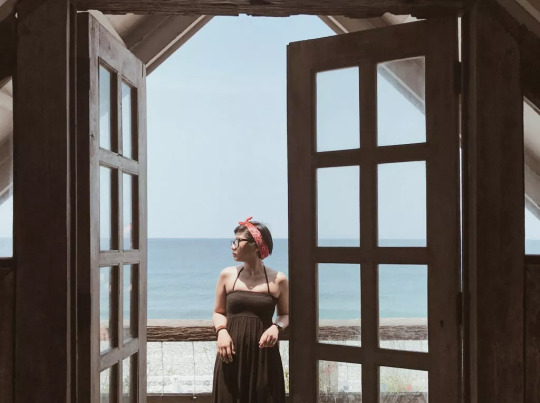
Went to Sagada with friends this month, I tried spelunking @ Sumaging Cave for the first time. Visited Mt. Kiltepan and had lunch at Guaia Cafe where they shot “That Thing Called Tadhana” (and yes I’m that Filipino indie film freak for sappy love stories), bonfire & boodle fight @ Lake Danum but nothing beats going there for the first time alone and experiencing the place and people. It is truly a place for healing.
This month blogger activity we had a food crawl organized by Chino and it was a success I was able to host them at the Brewery and Speakeasy as well but sadly I wasn’t able to join them. For work I hosted bloggers for Air Asia from Davao I think, anyways that was that.
“Lion” was this month’s favorite and “Eternal Sunshine on a Spotless Mind”. started watching the “Newsroom” this as recommended by my officemates and surprisingly it was good and I enjoyed it.
For this month’s family travel we visited the Grape farm at Bauang, Luna for the “Bahay na Bato” and Back to San Luis Del Mar, Bauang for an afternoon swim. We ate pizza and drank fresh coconut juice on the side of the road and it was cool.
MAY:

This month’s blogger event was an invitation at a spa opening. Me and Micah took the liberty to have a body scrub and bleaching – it was both our first time to experience it. I was okay. Published my first blog post after a long while “Don’t Think, Just Jump”
For work I organized a video shoot for BCB’s Aniversary, and the video was done by Hiromi Umatsu and his team. He was really good and we connected with the films and likes. This month I made a friend.
13 Reason’s Why was this month’s binge-watching series. which gave me nightmares by the way. The series was too heavy. and started to watch “How I Met Your Mother” again just to move on from “13 Reasons Why” “Guardians of the Galaxy Vol. 2” was okay. I kinda find it lame, to be honest. but It was funny lol. Other movies are, “Liberal Arts”, “Diary of a Teenage Girl”
Dad had a wedding exhibit at the mall this month. And for Dad’s birthday month and we had Tepanyaki @Hamada Restaurant, BCC. and surprised him with a cake at the Cafe. Cati, my friend also celebrated her birthday today, but we celebrated with kids at a church it was a nice outreach celebration.
This month’s adventure was at San Garbrielle’s Tangadan Falls, I went cliff diving thrice by the way I wish someday I can do it without a life vest. The habal-habal ride back to the main town was exhilarating, and it reminded me a lot about Baler.
JUNE:

For blogger activity, we visited the workshop at “Everything is Pine”, It was far but the view of the place was too good. I wanted to live there. For another event, we had a hosting at Zola, Dropout and one from Il Padrino. We’ve been basically just eating this month.
Still, binge-watching HIMYM and I’m done! “Moonlight” had cool take to a coming-out film. “Before I Fall” was okay. and for my first Koreanovela -“Descendants of the Sun” gahh I fell in love and gave all the feels.
A puppy visited us to work. and for this month’s event. BCB turned 3 – I felt like shit this day. I was so stressed, and annoyed. but yeah there we’re problems but it went okay in the end.
Had dinner at BCC for Father’s Day.
And for thrills and adventure, we went to Pugad Adventure with the bloggers. We tried out the ziplines & giant swing. I ALMOST DIED! then swam the whole afternoon. It was pretty chill.
JULY:

Still, on food assignments for blogger activities this time it was at The Camp – from Sala, Hardin, One-Sick-Damn- Joint. food!! and for Social Media Day we had a staycation at the Forest Cabin, this activity was super fun wine, food, games & friends. I needed this!! What I enjoyed the most was the bathtub. Can’t wait to have one of those. haha and, Cafe by the Ruins finally had its last Caniao it was a sad event actually.
Work has been rocky since June, but I was able to host other TV feature for BCB. Its been really slow and I’ve been working with BCB Cebu already and I was bound to Cebu for 10 days for its opening. I took the liberty to work hard on Cebu I’ve been beating myself more the 8hrs a day for the media hosting and grand opening. And I would go out drinking and have Karaoke with them until the sun is up. And in the afternoon I would go for a dip in the pool cause thank God they got me an Airbnb with a pool and it was near the site. and before anything else, I went around the city alone, rode a habal-habal from place to place. I liked this version of me that was carefree. I knew what made me happy – what made me. me. I really did love my own company, that I didn’t feel much alone when I was there. I learned to live, cook and care for myself. I was happy there.
And I did stand up comedy workshop with blogger friends and the next day It was my first time to put it to the test and I was so nervous but liberating to make fun of yourself in front of a crowd, it was the longest 3 minutes of my life and Thank God they laughed!. This month I was able to tick another box on my bucket list.
Also Mom’s birthday month! dinner as per usual on our favorite korean place -Wood Nymph haha.
Finally watched “Miracle in Cell No. 7” -I cried my eyes out! “Okja” did the same thing. watched “Kita Kita” in SM Cebu alone and cried again but I didn’t mind.
AUGUST:

Now back to my city, friends welcomed me home and we had dinner @ Slaughter. nothing fancy but the food was always great. I was able to meet a lot of my friends this month, I had coffee and beer with Janine, Jerrilyn and Zandra. Had dinner and wine with one of my favorite human Tom- we catch up and shared our sentiments in life. We just missed each other. I’m super proud of him!
Enrolled for Open University for an MA in Development Communications. Lunch at Canto with an officemate that is a good friend. and celebrated Paul’s birthday. this all happened in one day.
“Rebel without a Cause” was this month’s film. “Everything, Everything” made me kilig lol “To the Bones” was good as well. “100 Tula para kay Stella” got me crying real bad on the last part.
For this month’s adventure Micah and I tried to travel alone for the first time ever. bus ride after bus ride, and jeep and a tricycle we finally arrived in Batangas! Thank’s to AC for hosting us at Club Balay Isabel, we stayed there for 2 nights. he gave a tour of the resort, took tons of bikini pictures, and pool day all day. It was the life. a break from the stress. It was a good day.
SEPTEMBER:

Baguio day! Spent this day with my forever bestfriend Micah, breakfast at Cafe Adriana, did our blogger duties, fixed our schedules, made plans for The Local Folke and visited sir Jogin at 18 BC. We can feel that this month is going to be busy for the both of us. With school and work, friends, other projects, traveling and blogging I might lose it lol. We decided to make The Local Folke a community and planned for a gathering of creatives. The activity went super well, we had brunch at Arca’s Yard and Chiara bought the Raw Table and shared it with us. It was super inspiring.
Micah and I attended Maxine’s Lipstick line Launch at the Basement. The lipsticks were really nice, I really like the choices of shades. Had a few drinks, met and made friends. Climb Mt. Ulap for tree planting with Chiki (turistaboy) and Kuya A (ATravels), and it was raining super hard, so we decided to descend early had a fellowship, met new friends, it was a cool experience, no regrets.
This month’s film was “Boyhood” it was pretty mundane nothing much except you get to see the actors grow up on screen which was cool. Did a movie marathon Wes Anderson, Rushmore, The Shark and the Wale, The Darjeeling Limited, The Royal Tenenbaums, Aquatic Life with Steve Zissou, The Grand Budapest Hotel, and Moonrise Kingdom. I’m a super fan of this works and how it is curated, I’m super in love with his style everything!
OCTOBER:

This month was both a good and a bad month but nevertheless, I was always productive. We have our first solo hosting of the Gathering for The Local Folke at the Other Office, we were only expecting 10 attendees but ended up hosting 15! it was hard, tiring and consuming but we were able to pull it off and It was all worth it.
For work, I coordinated another magazine feature BCB at Travel Now Magazine. and we had a Halloween Party, us at the office took the liberty to dress up as well, I went for that 40’s tattooed pinup look. This is my first time to dress up for Halloween haha. Anyways this month’s food highlight is Aytron & Ebenezer’s sinigangan na Bangus is the bomb!
Chino had an art exhibit this month together with his dad at the Baguio Museum, we were all there to support this milestone of his. He was good and damn the guy can paint. We also attended the 4th year Aniv of The Other Office -the birthplace of The Other Blogger and played mini golf. it was my first time to watch fireworks up close it was breathtaking – magical even!
Wonder Woman on cable. started How To Get Away with Murder. lol It was really exciting to watch and mind puzzling. “What Happened To Monday” was a good futuristic action movie, really nice plot twist.
My slowest month yet, no travel but I was able to hang out a lot with friends and workmates.
NOVEMBER:

This month was sht to be honest. It was the worst. I resigned to a job that I love doing because my morals are being challenged and I simply had to choose. I wrote a two pages resignation letter and that was the bravest thing I’ve ever done this month. But I just felt like I had to do it. and for my last media hosting, CNN Philippines. -my finish strong. For a week I was depressed, I cried and drink and all that stuff. It was hard turning over, given the time. I felt powerless.
The day after my last day I was bound for MNL for a Blogapalooza @City of Dreams, It was my first time inside of a casino and I tried my luck as well. It was a bonding experience, the breakfast buffet at Nobu Hotel was really good. and the room interior was nice and clean. Right after the event we took the liberty to look around the city we visited the National Museum of Anthropology and I enjoyed so much that I didn’t even felt hungry, I was so amused by the artifacts and stories behind it.
Rewatching “That 70’s Show” my all time favorite show. Had a date with my brother, we watched Thor Ragnarok, we went thrift shopping, strolling and taking random pictures around the city. It was a good bonding day cause I barely had time with him.
This month I started jogging, and had wine with my favorite person -Micah and ma’am Ninj at Arca’s Yard and for the gathering, it was super intimate, honest. and I love that my brother was there and he was really good. Everything was so good, the people, the sharing, the love. everything. I tried to declutter and fix my things. I threw some things and kept some things. This month was hard.
DECEMBER:
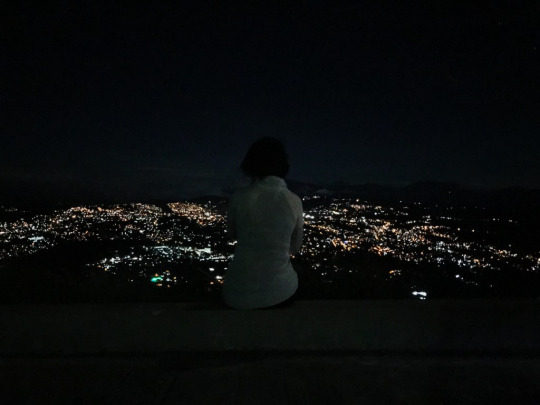
December was light – It was a very light month and super jampacked. but still, there are ups and downs. We were able to do a 3-day garage sale, finished my first semester of my masters. Mom got bitten by one of our cats and I have to accompany her get her shots. We lost two baby kittens this month and it was devastating, we cried a lot.
We hosted the “Towards One Blogosphere” a blogger event for local Baguio Bloggers. the event went okay. after that WTB invited me to come with them for an exhibit at Oh May Gulay, it was my first time to go and I was able to meet the artist as well. I like these guys a lot! they’re so cool!
Had Christmas dinner with the friends and gave my gifts. and for our gathering that almost didn’t happen, we had a picnic and it was lovely, we’re happy with the outcome. Micah surprised me with a Where To Next Planner and right after we had life talks at 2600 while we eat chicken haha it was really fun and lovely day. and for Christmas day we went to Baguio City Jail to give out letter and toiletries among other things.
Climb Mt. Kalugong with my ex-officemate that is now a really good friend of mine. I also went to Winaca Village, I simply walked around and I relearn how to drive again yey! then on the same day, we drove to ELYU for food and drinks, we did a set and snuck on a beach hostel to drink. It was a very spontaneous experience with my college friends and best friends. It was pretty cool. and for my last travel up north, we went to Mt. Cabuyao, for sunset but it was too cloudy however the city lights got me – it was so gorgeous, I liked how cold it was I fell in love with everything about it. I’m coming back here every year. We had bonfire and beer, and habal-habal on our way back to the main road. Also received my camel backpack from Ebenezer! It was worth the wait haha.
And I was able to finally have my closure and it gave me all the right feelings. I was me again, I felt a lot lighter. I’m happy again. and I can truly say that now.
xoxo
0 notes